Tuesday 17th April 2018
We had promised ourselves a visit to the city of Cadiz whilst in the area and despite both of us feeling ‘under the weather’ we were not going to miss out on this opportunity.
Cádiz is thought by some to be the oldest continuously inhabited city in Western Europe, founded in 1100 BC by the Phoenicians who called it Gadir and traded Baltic amber and British tin, as well as Spanish silver. The city subsequently became a naval base for the Romans before fading into obscurity until 1262 when it was taken from the Muslims by Alfonso X.
The real boom period was with the discovery of America as Columbus sailed from this port on his second and fourth voyages. Much later the city enjoyed a golden age during the 18th century when it enjoyed 75% of Spanish trade with America. From this time it grew into one of the wealthiest and most cosmopolitan cities in Spain and most of the city’s fine buildings date from this time.
From Zahora the journey to the old quarter of Cádiz was about an hour. Cádiz is situated on a peninsula and the city is almost completely surrounded by the sea.
Our journey to the old town took us along the CA-33 with views of the sea on either side of the road, as well as the Constitution of 1812 Bridge, known as La Pepa Bridge in the distance.
This new bridge across the Bay of Cadiz, Bahaí de Cádiz, links Cadiz with Puerto Real in mainland Spain.
As we approached the old part of the city on the Avenue Andalucia we entered the city walls via the Puertas de Tierra.
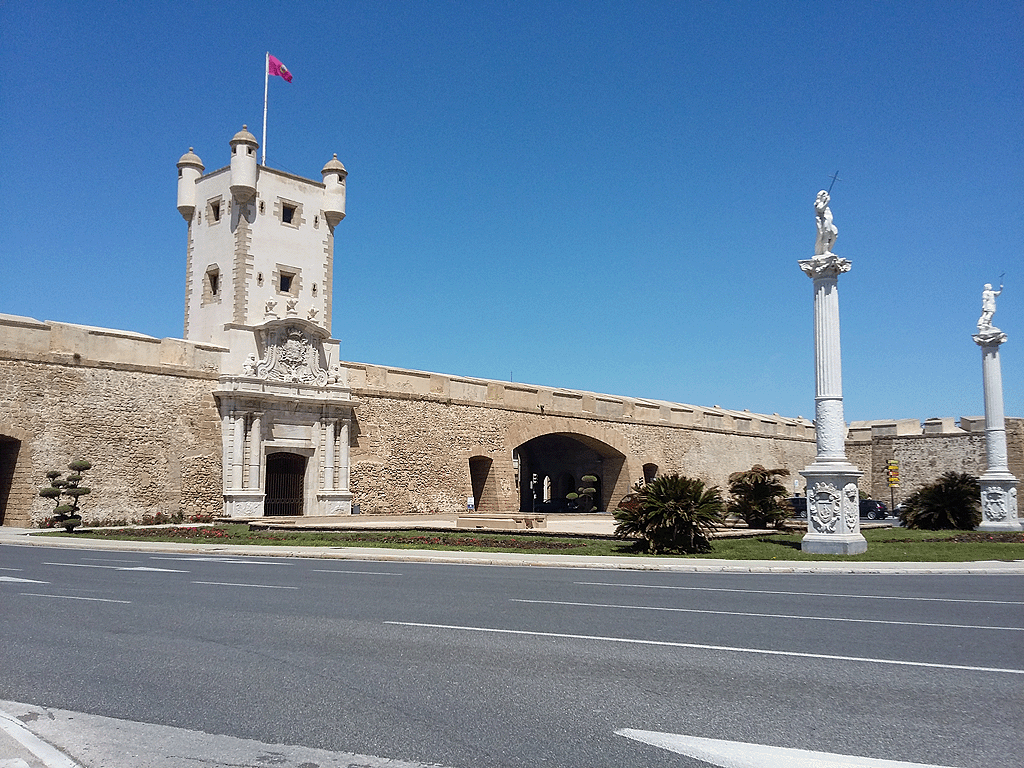
We followed an anti-clockwise route around the city until we settled on a car park close to the Genovés Park.
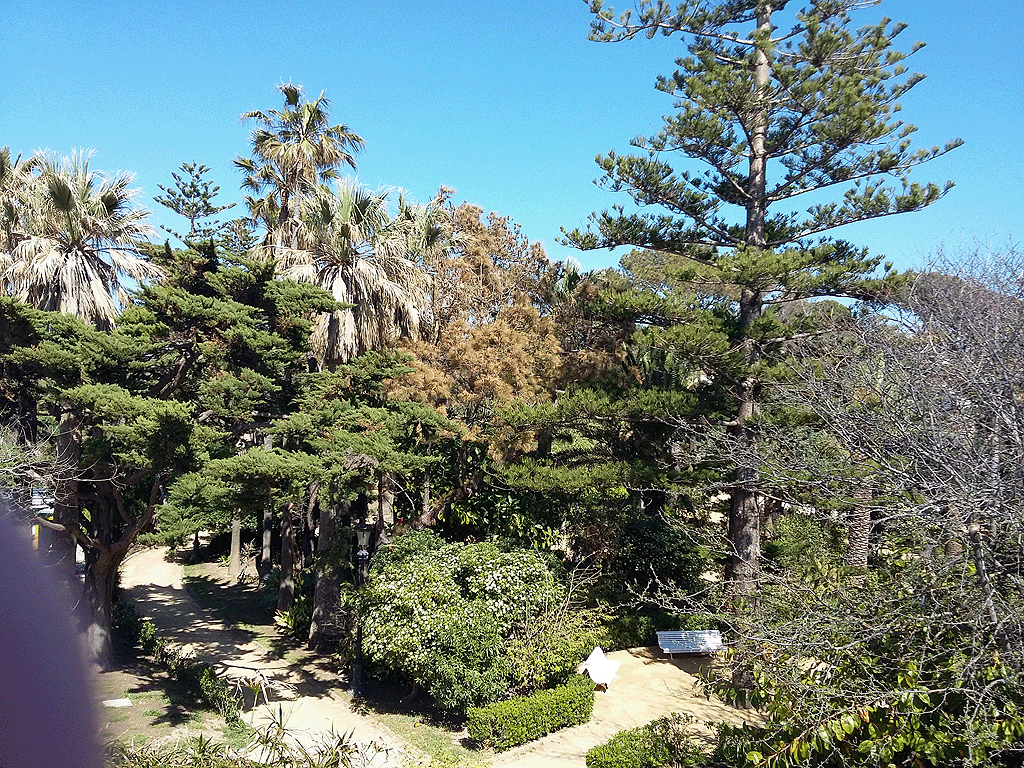
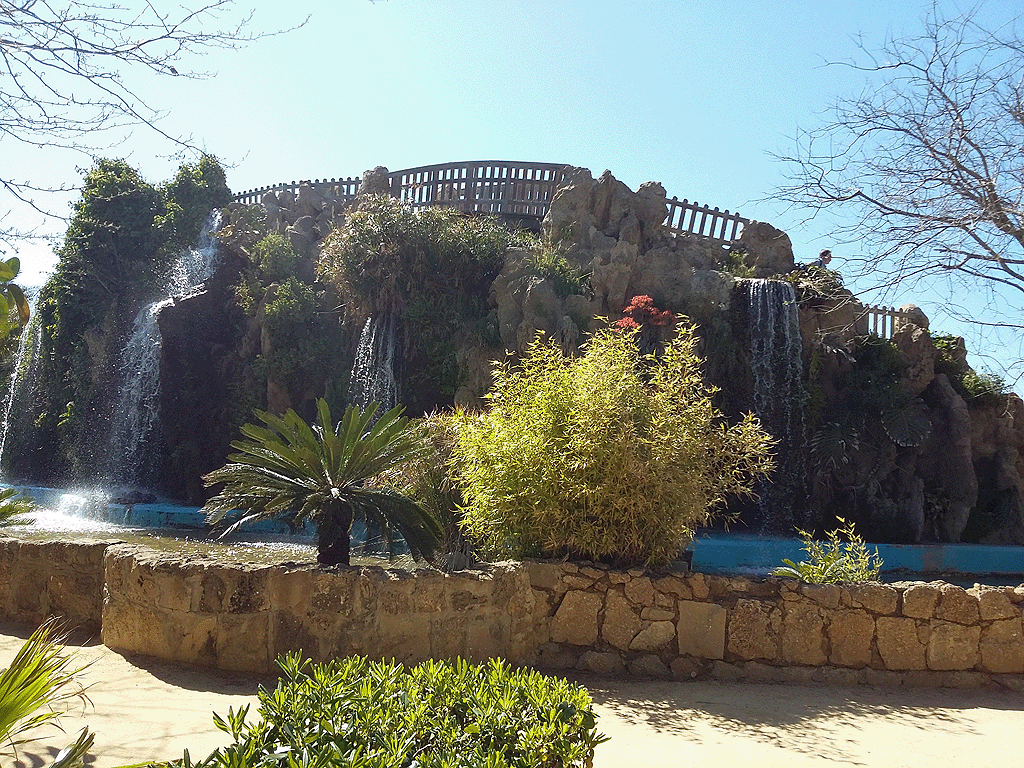
The open air car park suited our needs but there was certainly no shortage of car parks available, including many underground ones.
Today we decided to seek out the tourist information centre for a map and suggestions of routes to follow. We knew we wouldn’t be up to exploring the entire city.
Close to the port of Cadiz we located the tourist office and armed with our map, we had the choice of 4 different walking trails around the city. The trails are marked on both the map and on the streets, using the colours Green, Orange, Purple & Blue. Although its fair to say some sections have worn away with time. Nevertheless after consulting the map you should be back on track. We decided to do a mix of all four and take in as many of the sights as we could.
The narrow cobbled streets were picturesque and opened out on to different plazas or squares. Some quiet, small and intimate and others much larger, busy and vibrant.
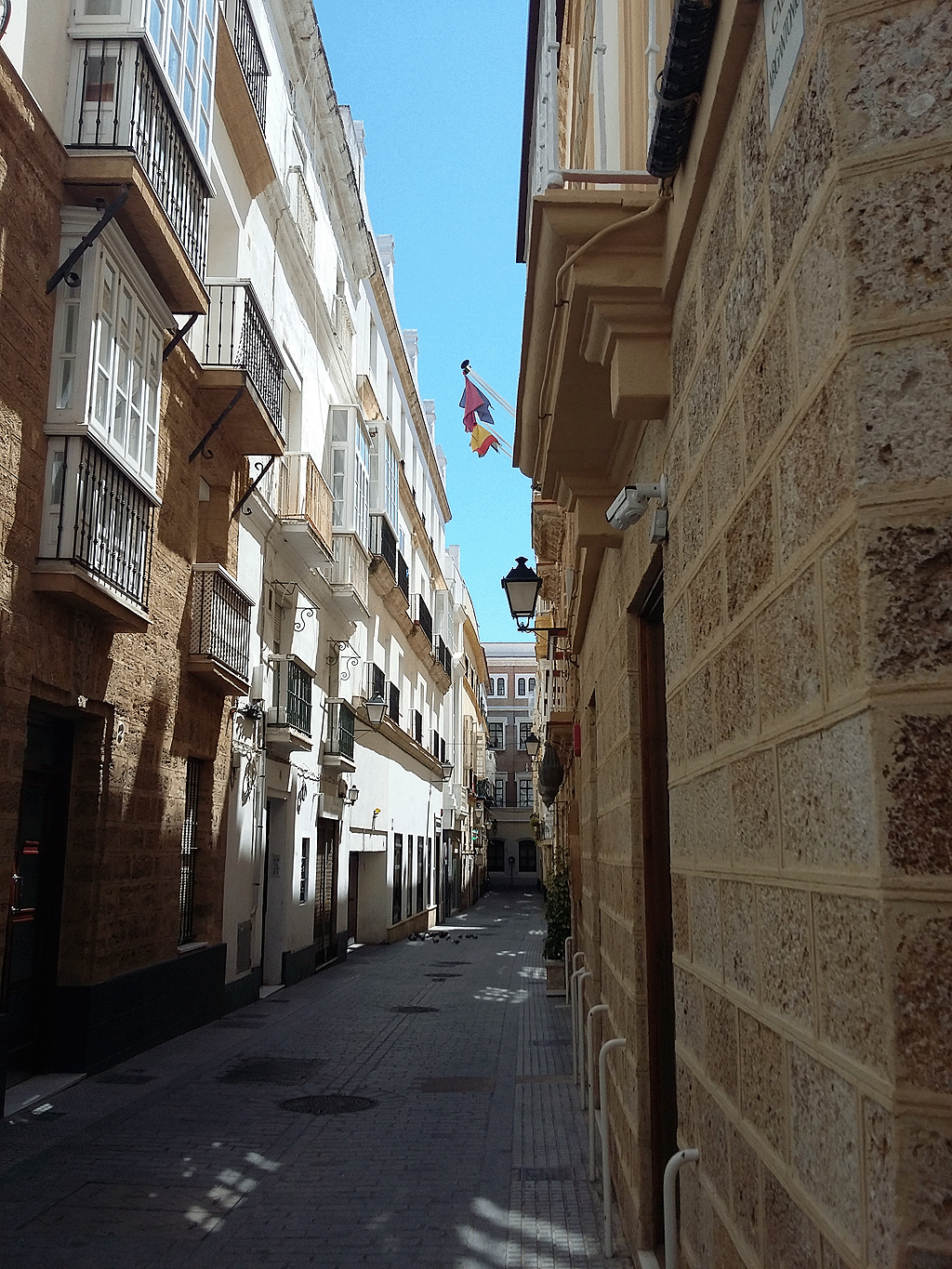
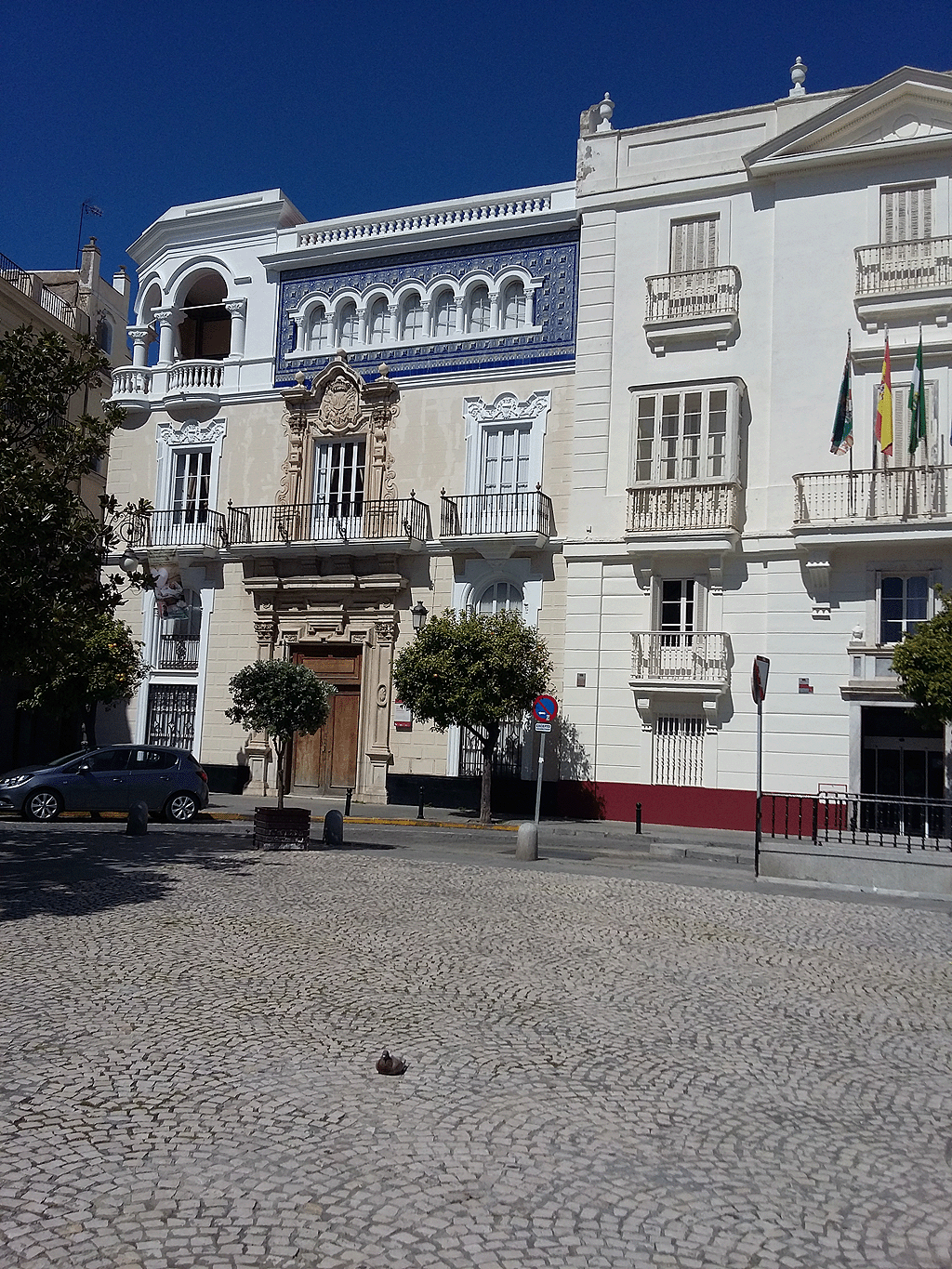
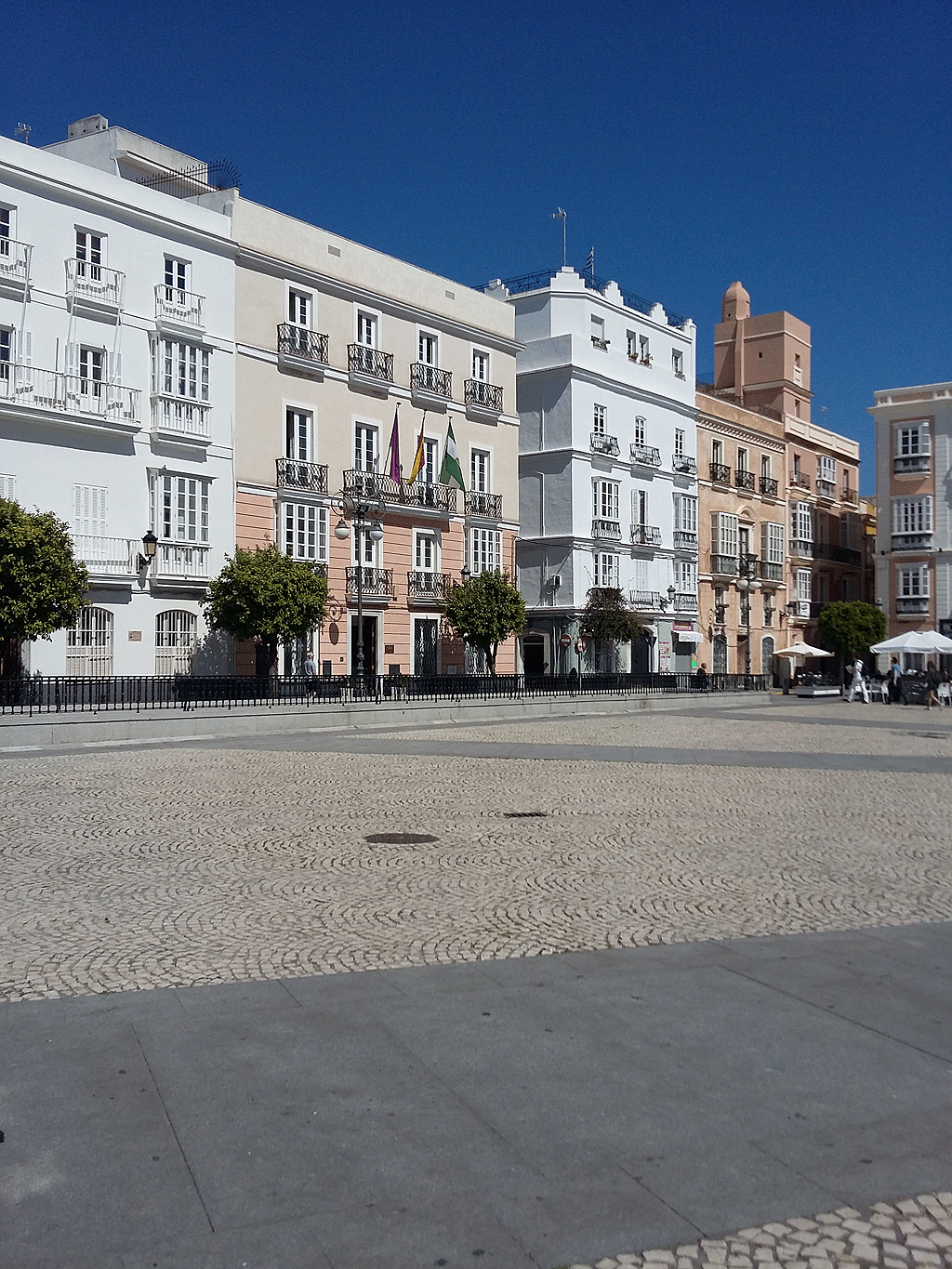
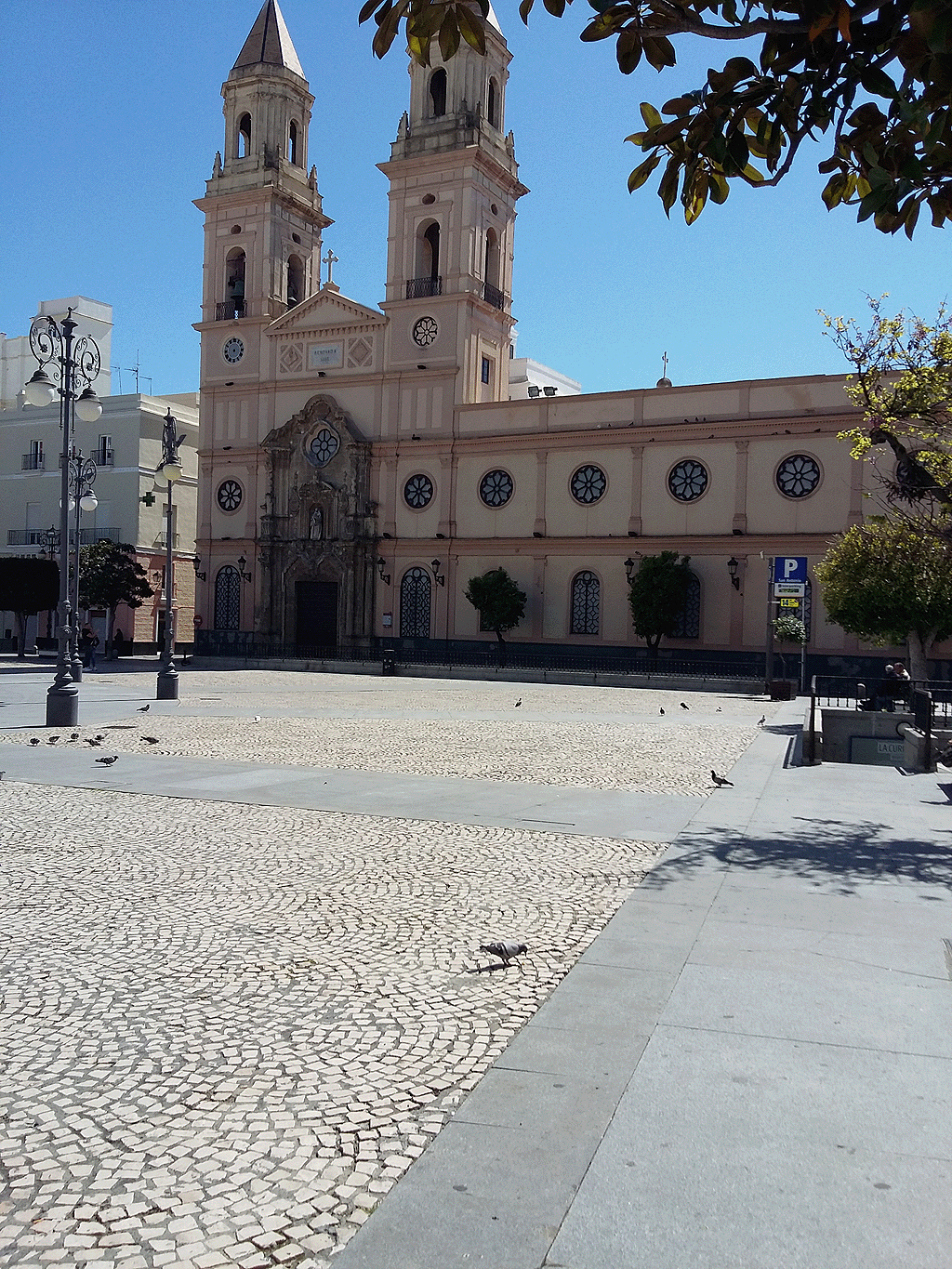
Apparently it takes about an hour to walk each of the trails but as they often criss-cross one another its possible to skip from trail to trail.
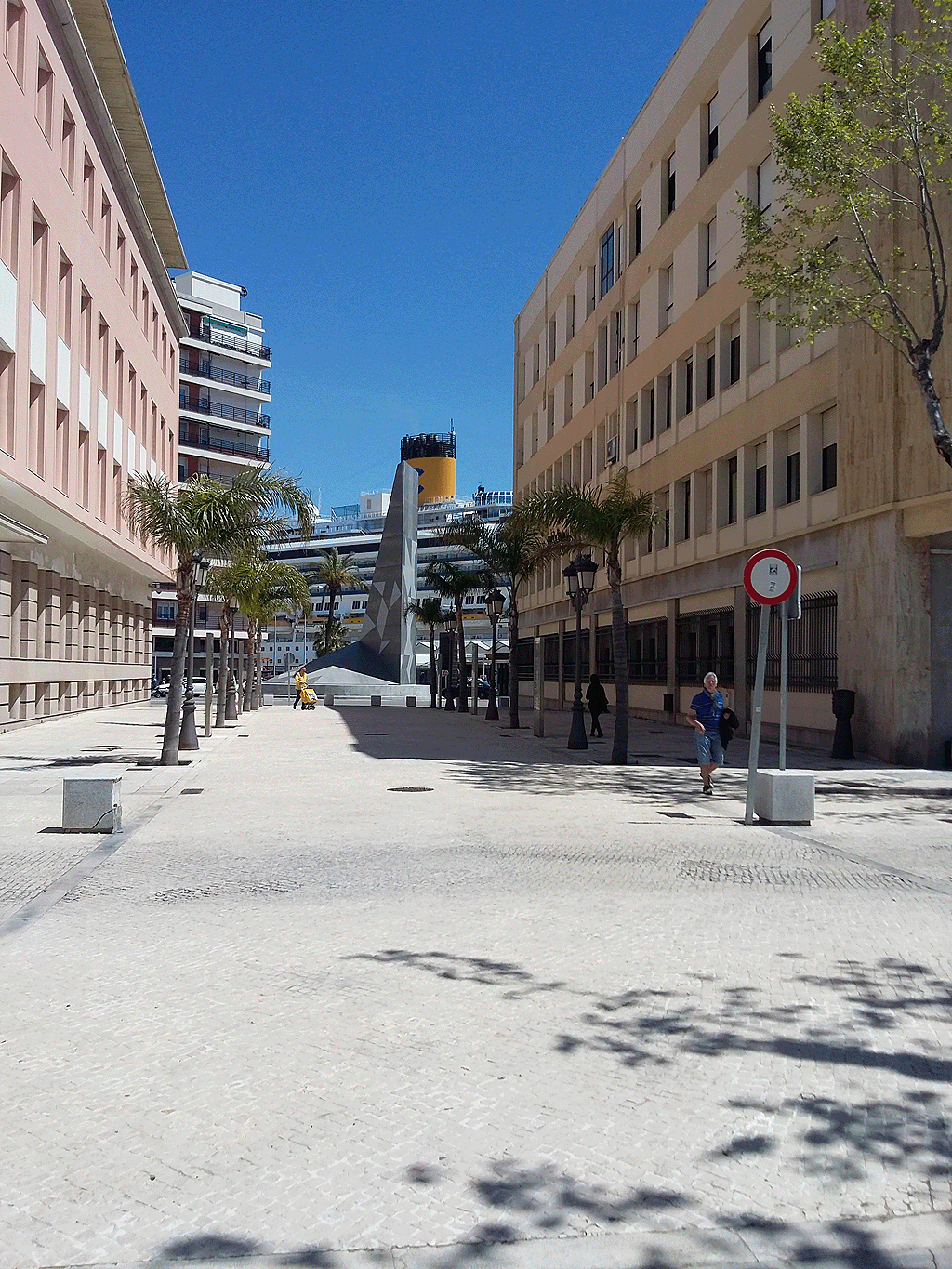
From the port with its huge cruise ship in dock we headed off on the Orange trail to the leafy Plaza de España and the monument commemorating the Spanish Constitution of 1812.
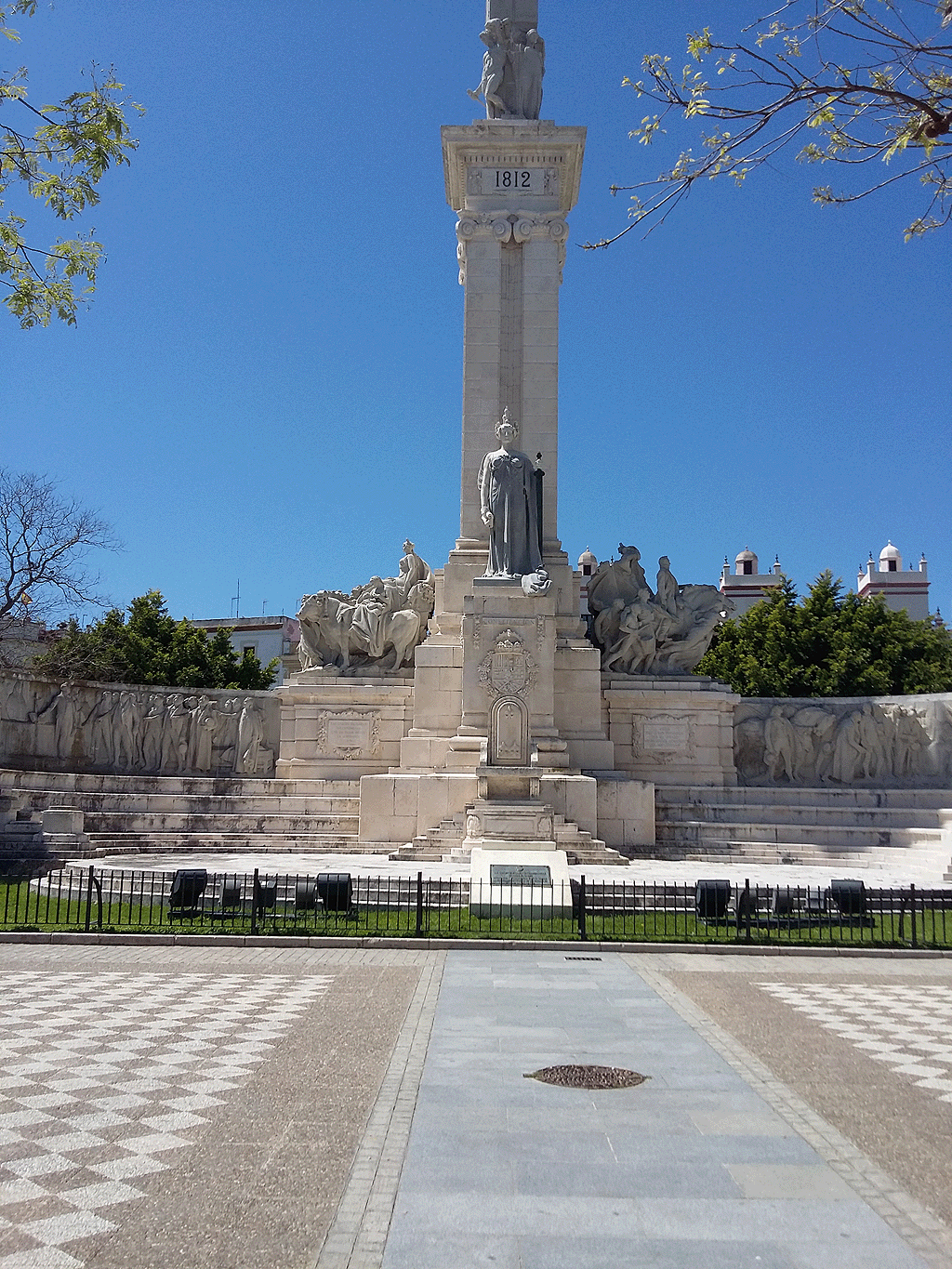
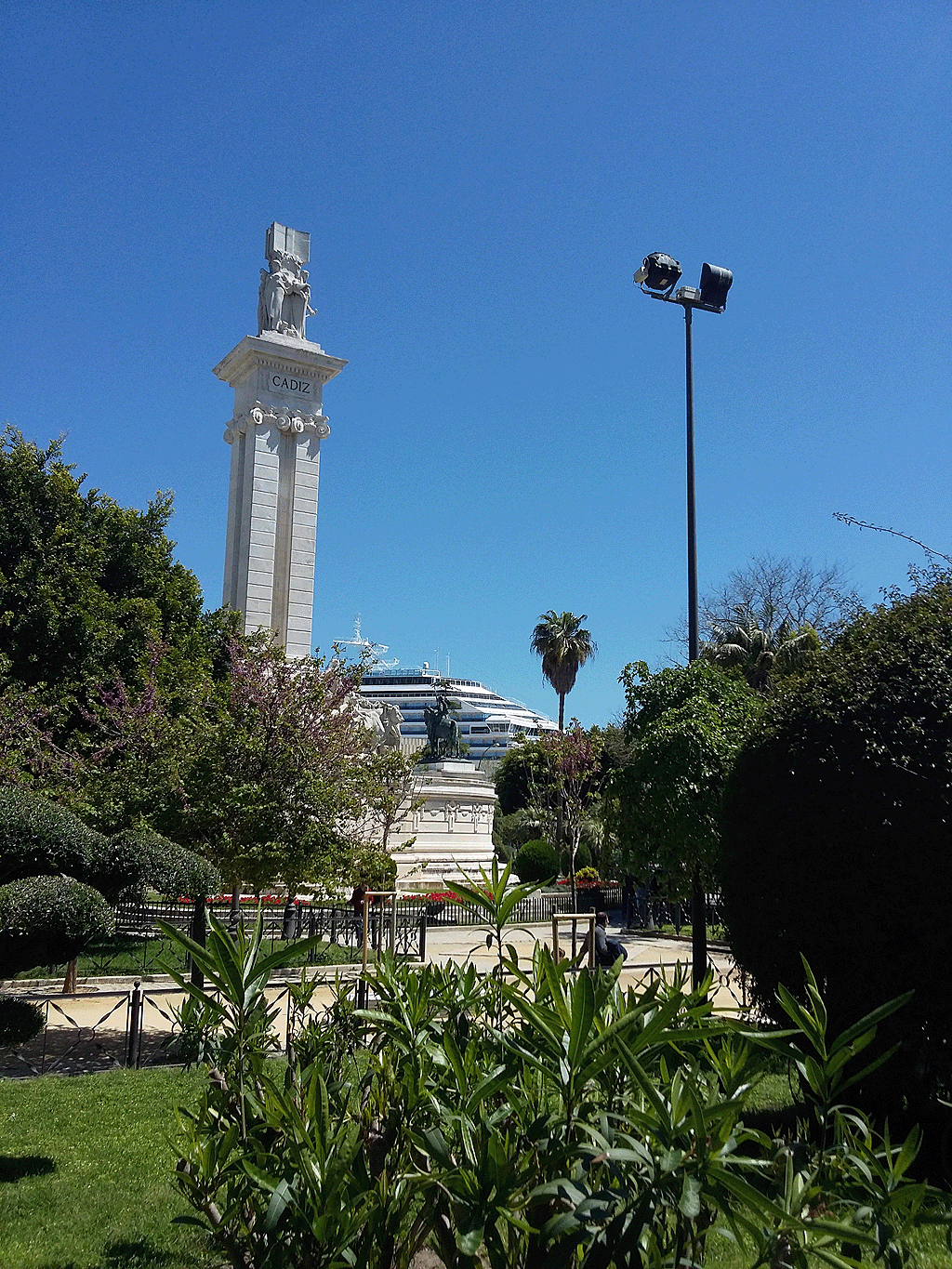
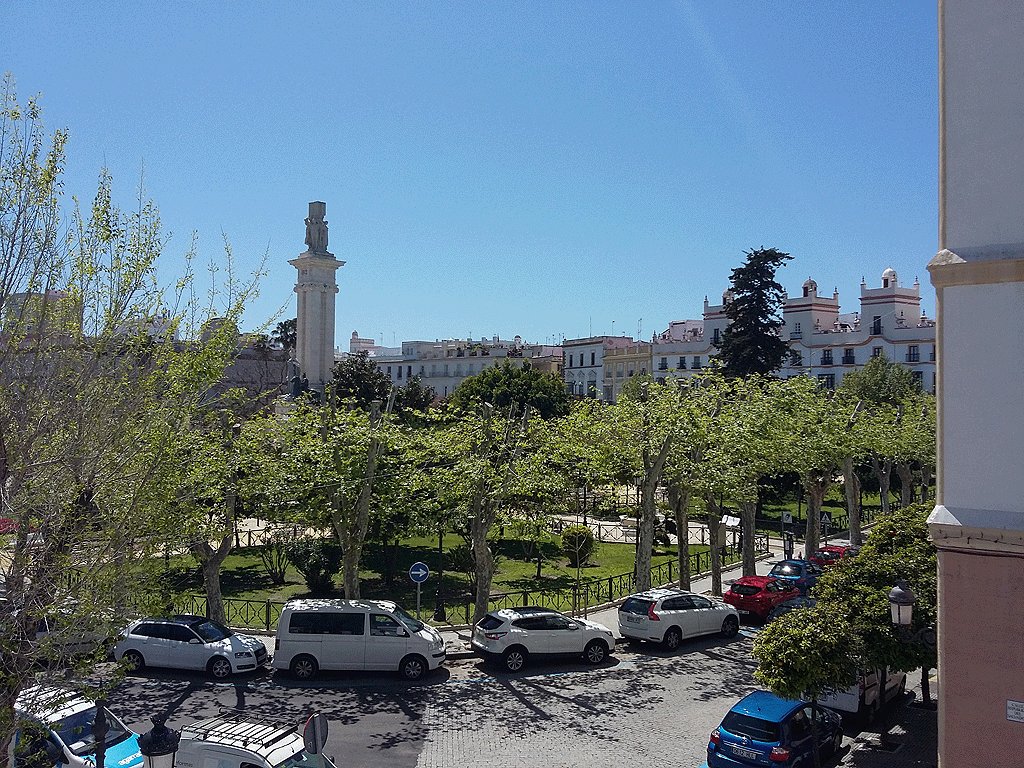
We exited the park and headed up a flight of stairs to take a stroll along the outer 18th century defence walls, The San Carlos Murallas and enjoyed views of the Atlantic Ocean.
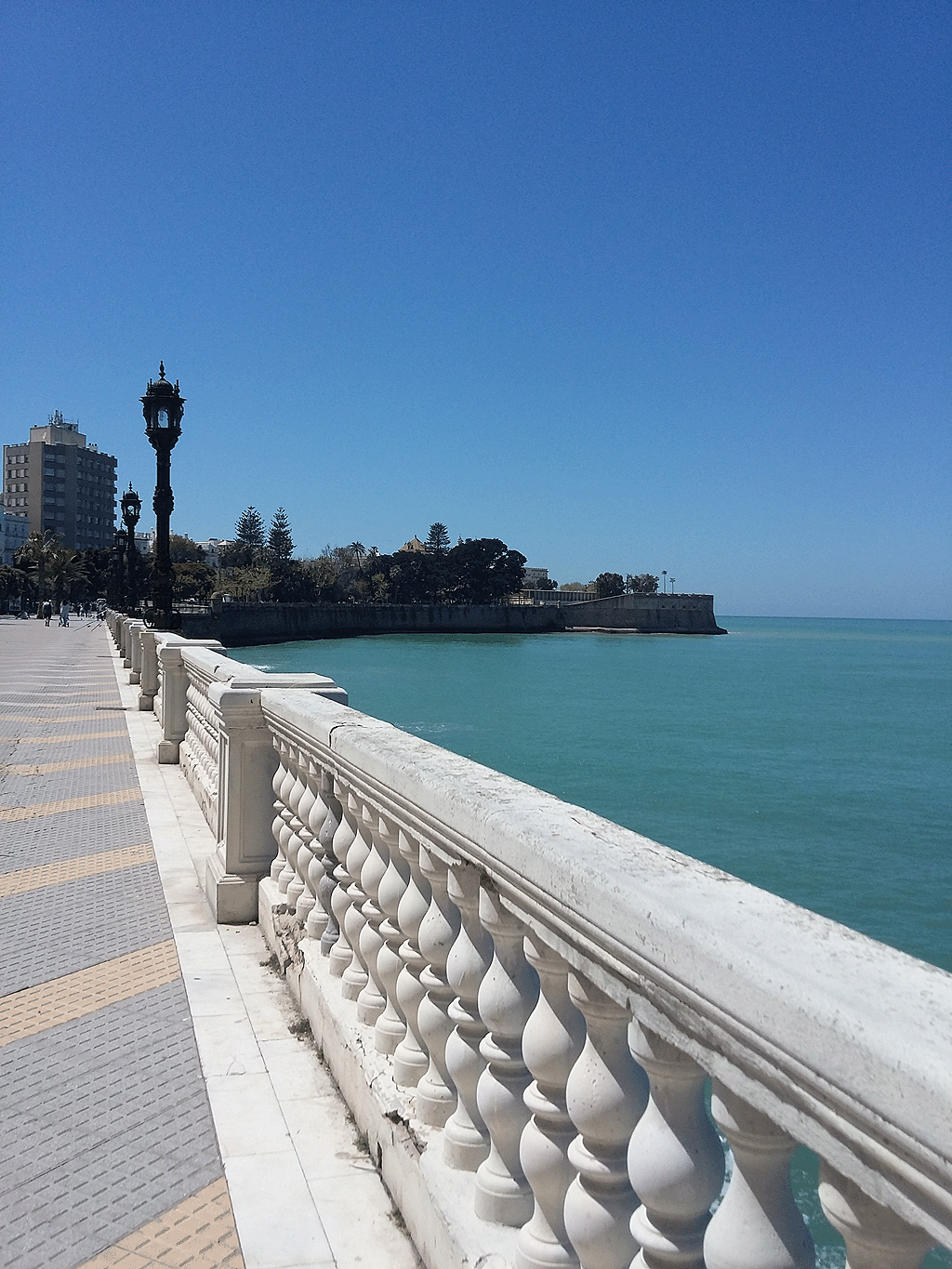
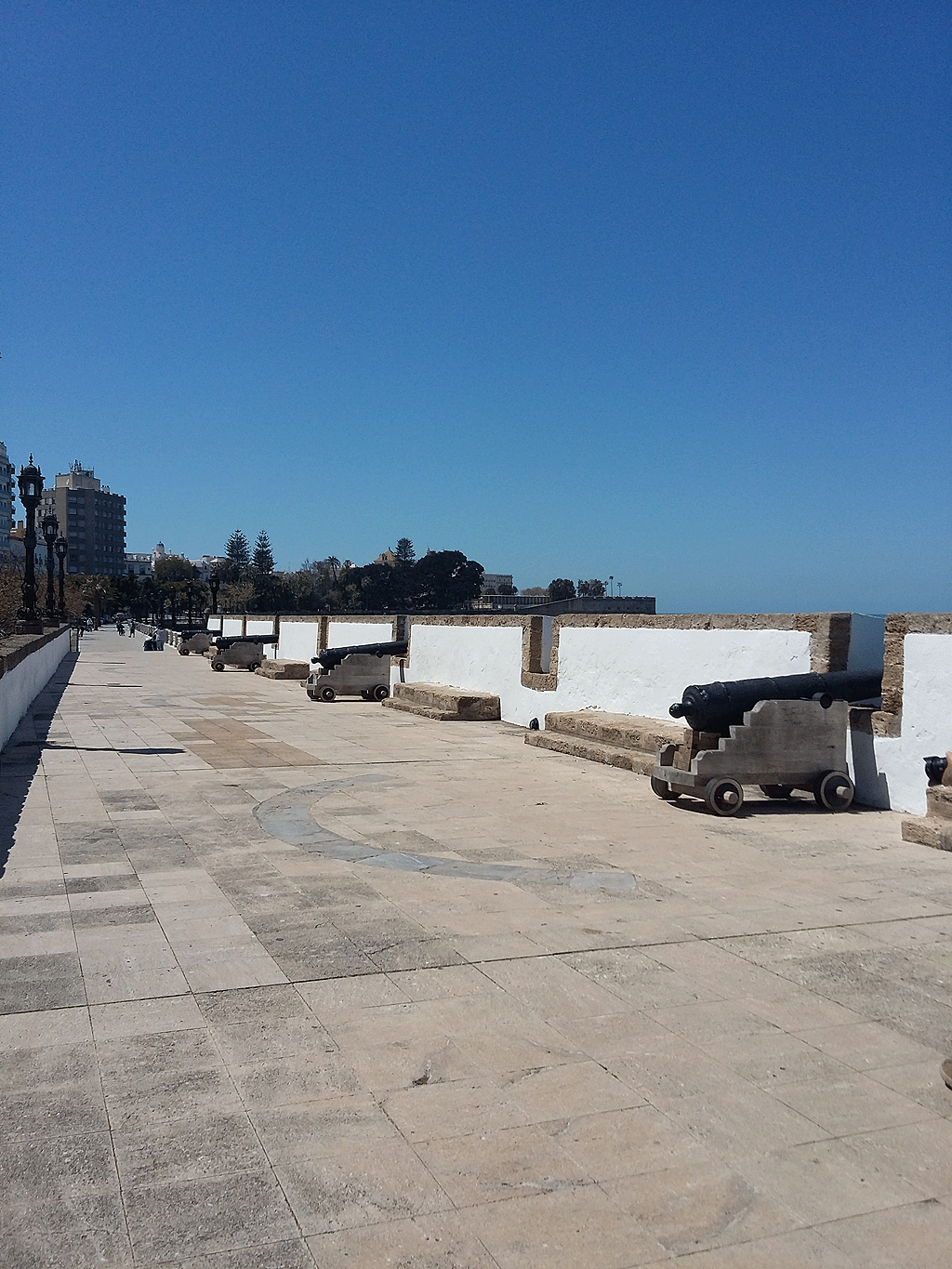
Leaving the wall we made our way back into the city and some monuments on the Blue trail.
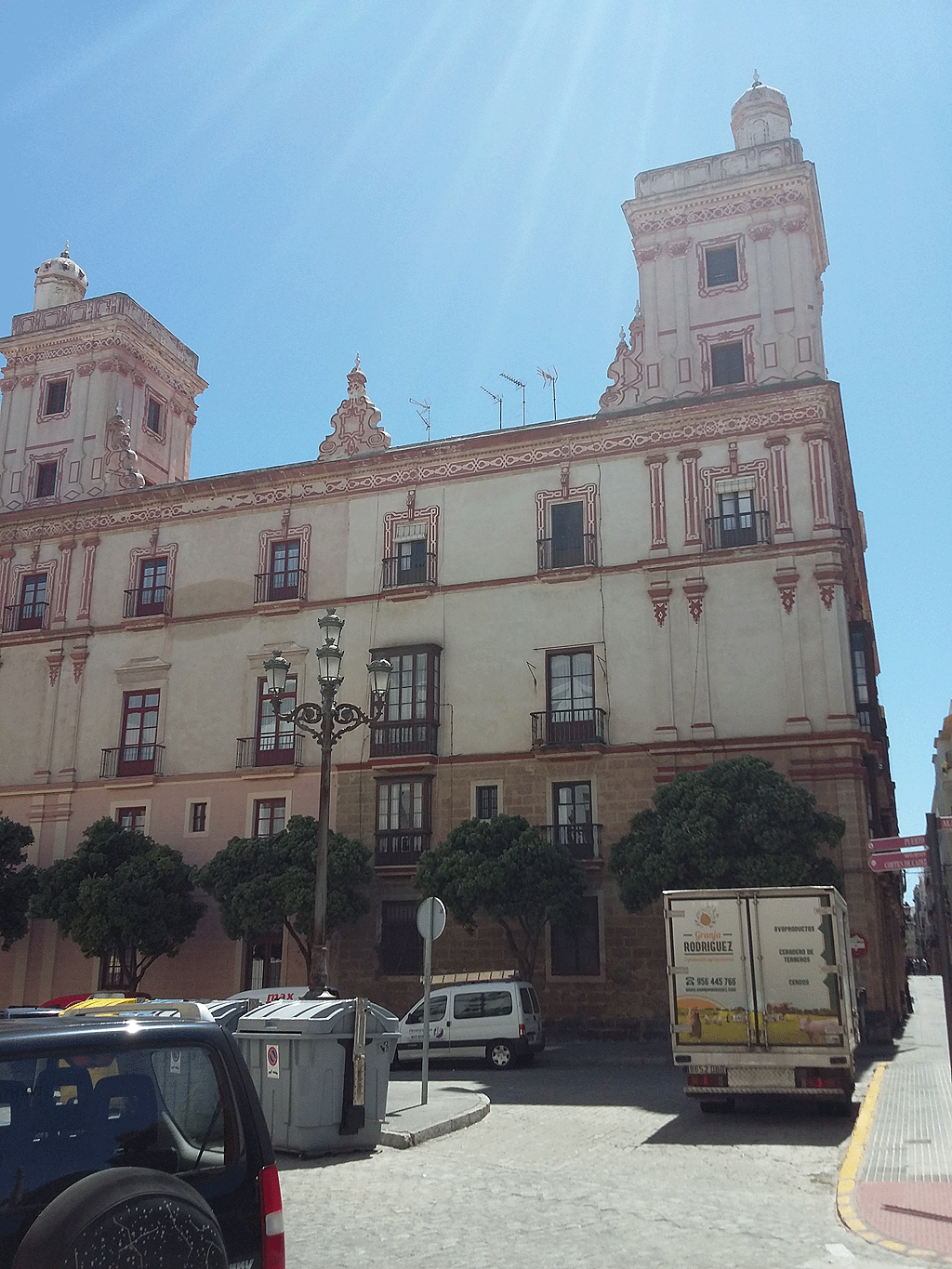
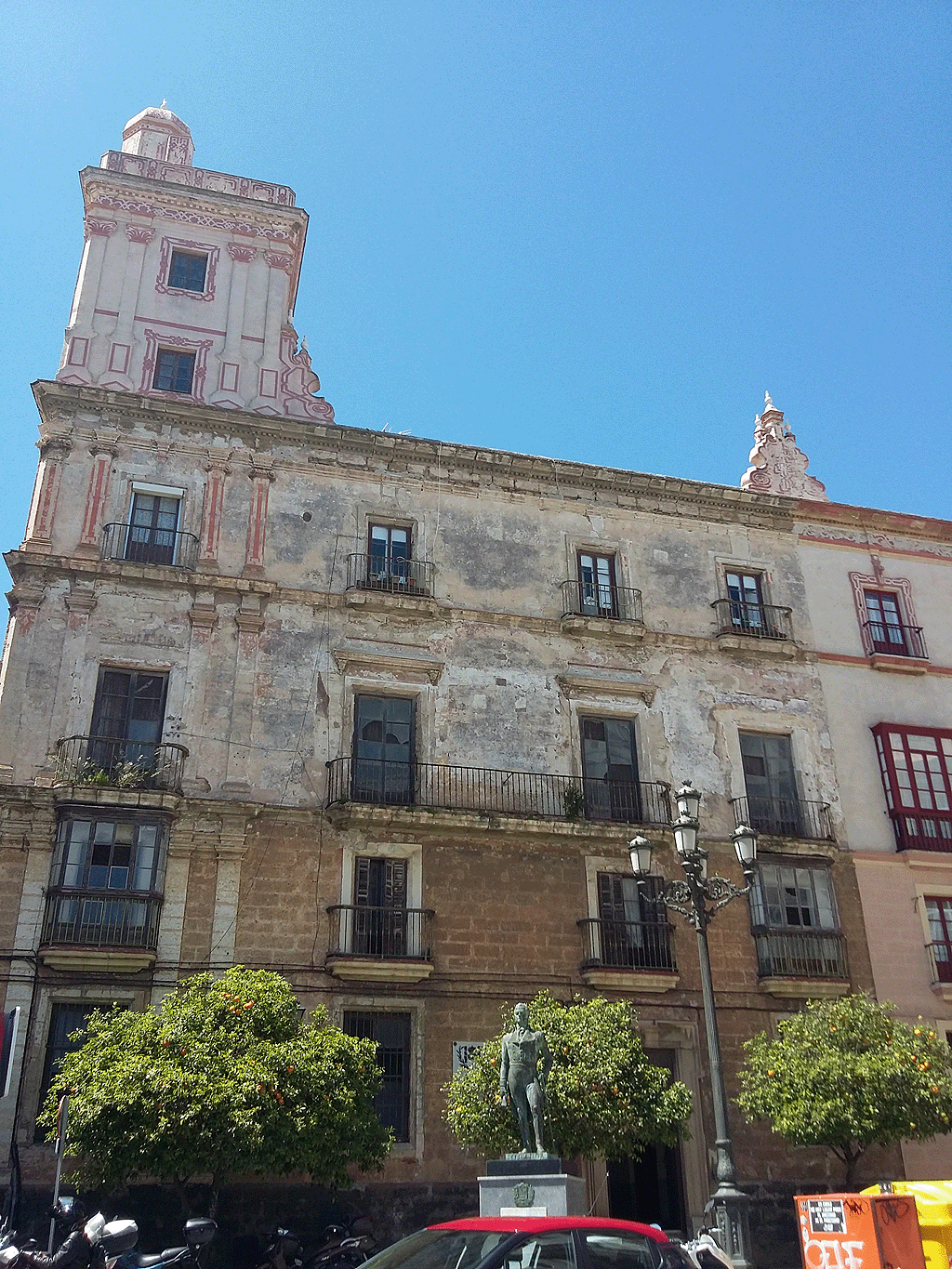
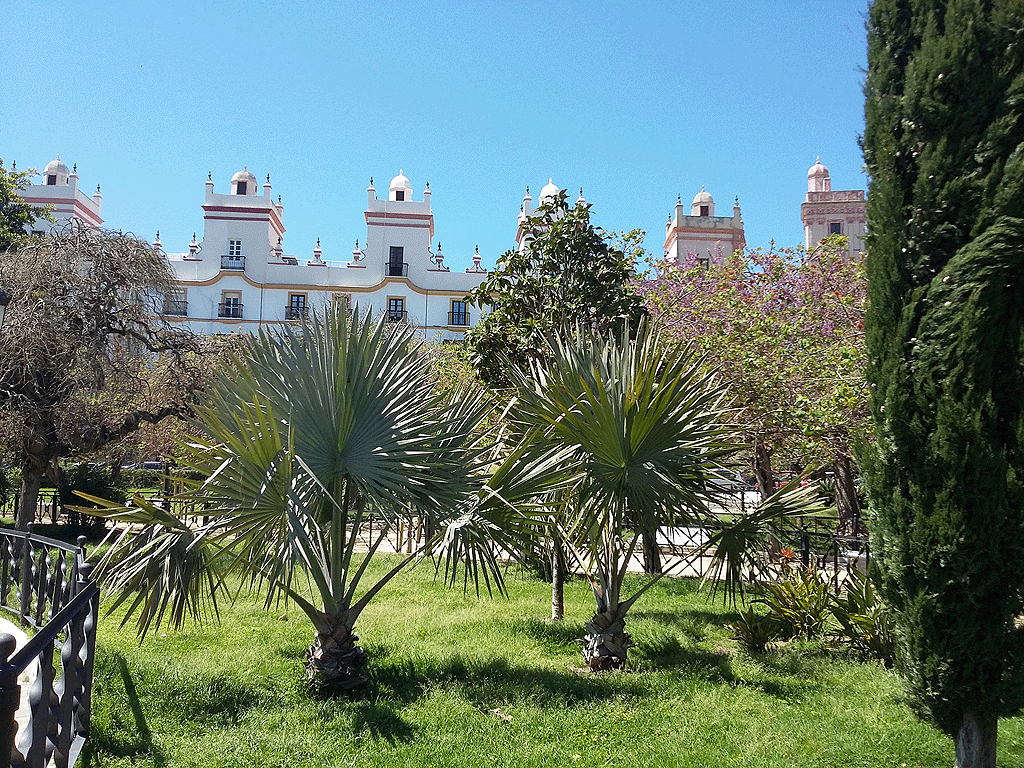
Cádiz became famous all over the world thanks to its watchtowers. They were the first thing travellers saw when they came into the town by sea, creating a picturesque and distinctive silhouette of the city. The watchtowers of Cádiz are one of the most characteristic elements of Andalusian architecture, which is influenced by North Africa. Generally watchtowers were used between the 18th and 20th centuries. Around 1777, Cadiz had 160 watchtowers; these can be seen in the Museum de las Cortes, which has a model of Cadiz in 1777. Of these 160 watchtowers, nowadays 126 are still standing.
In the 18th every merchant decorated his house with a watchtower, they were thus a symbol of prosperity for Cádiz, acquired through its successful trade with the West Indies.
On to the Green trail we made our way to the Plaza San Juan de Dios.
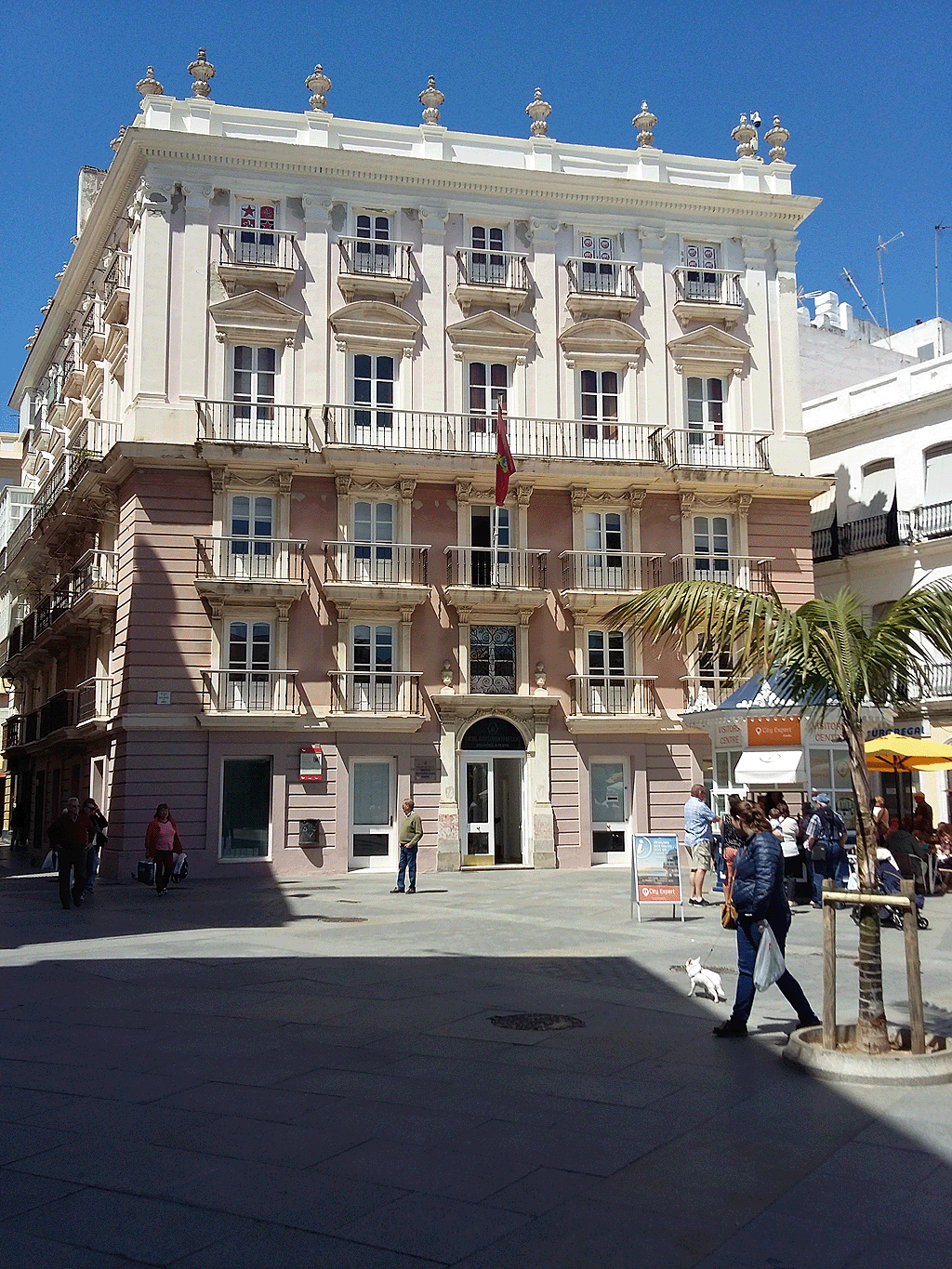
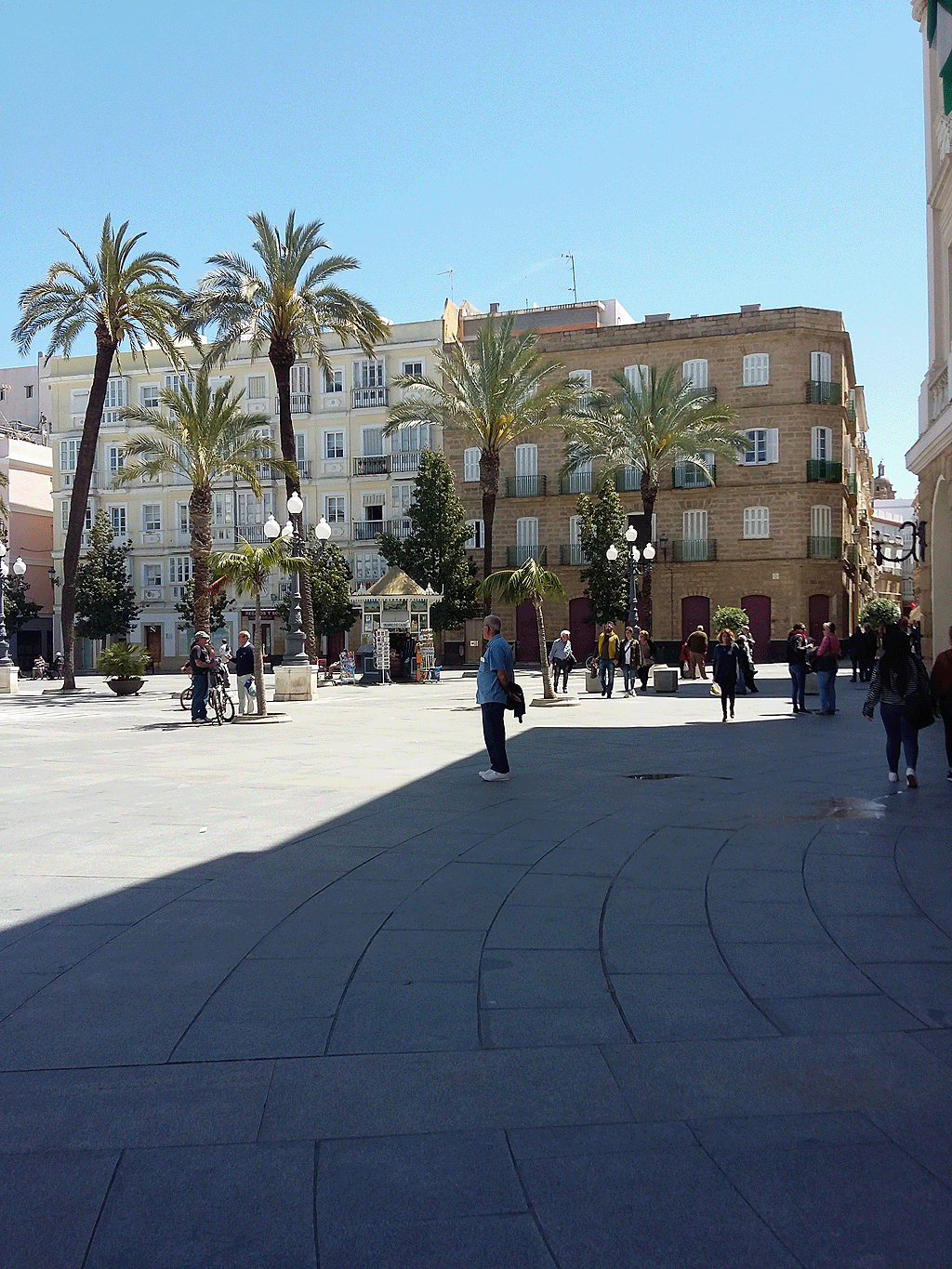
Then onto the Plaza de la Catedral.
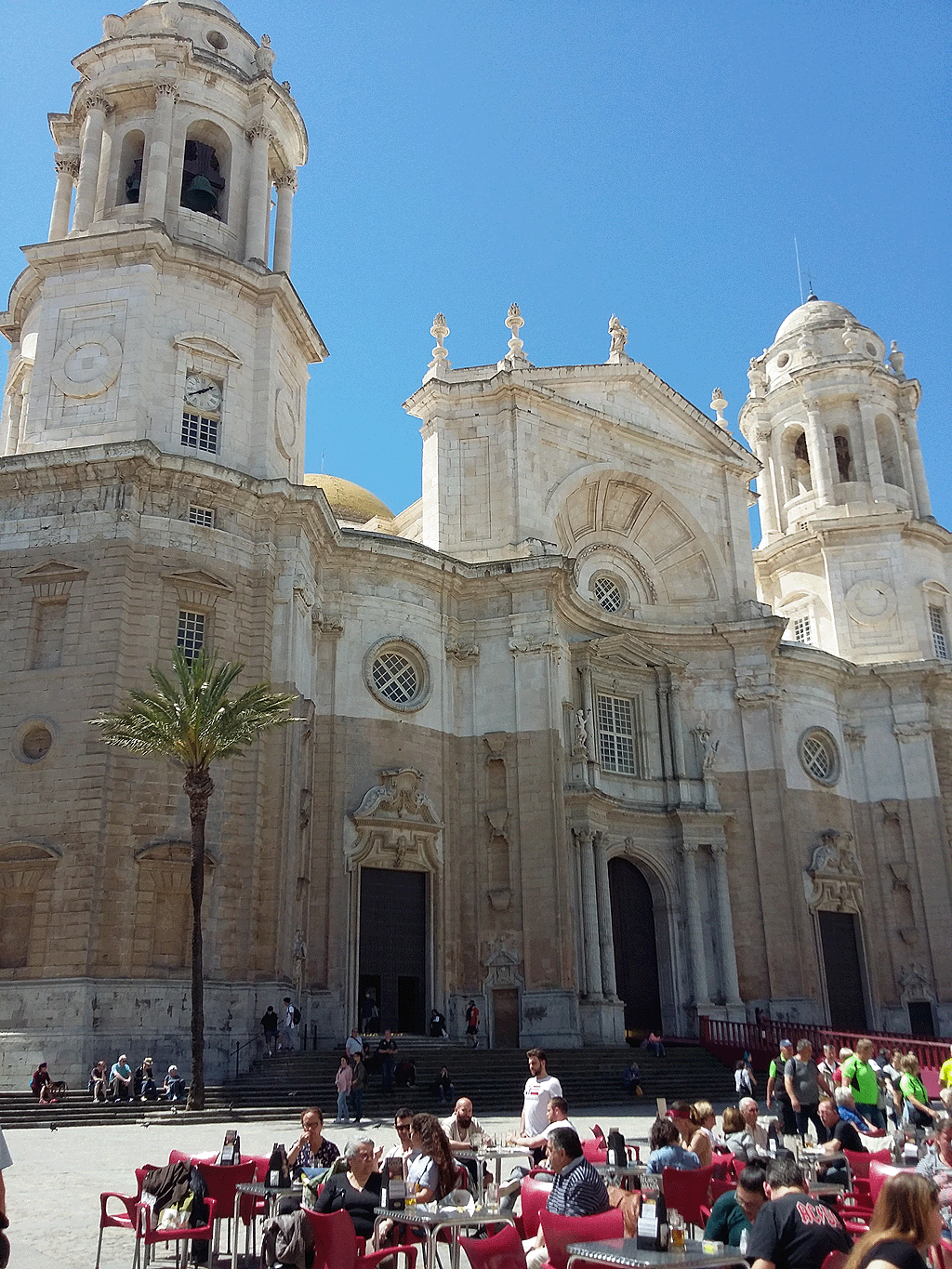
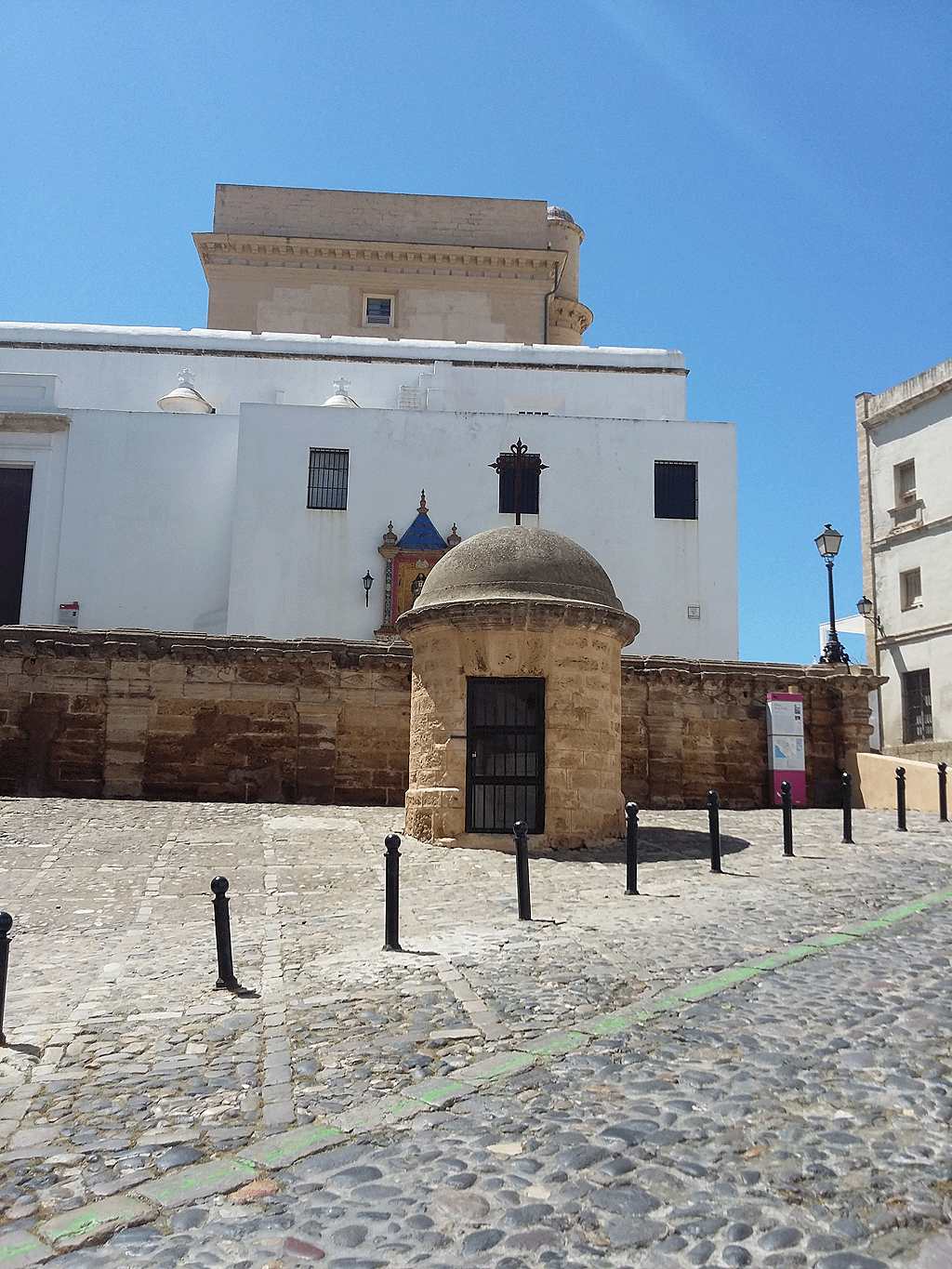
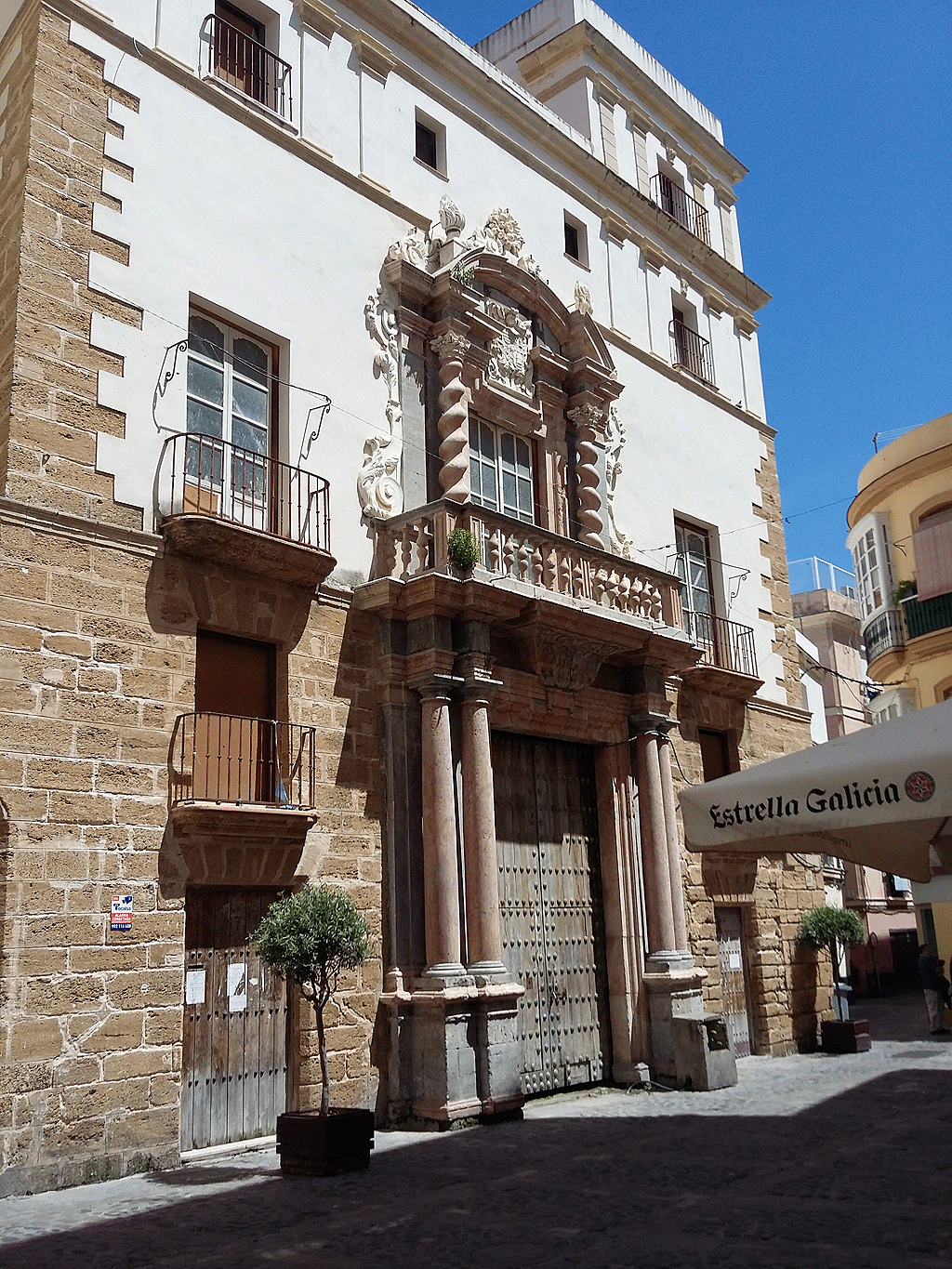
Passing the Admiral’s House led us towards towards the ocean again, but this time on the south side with different views of the spectacular cathedral.
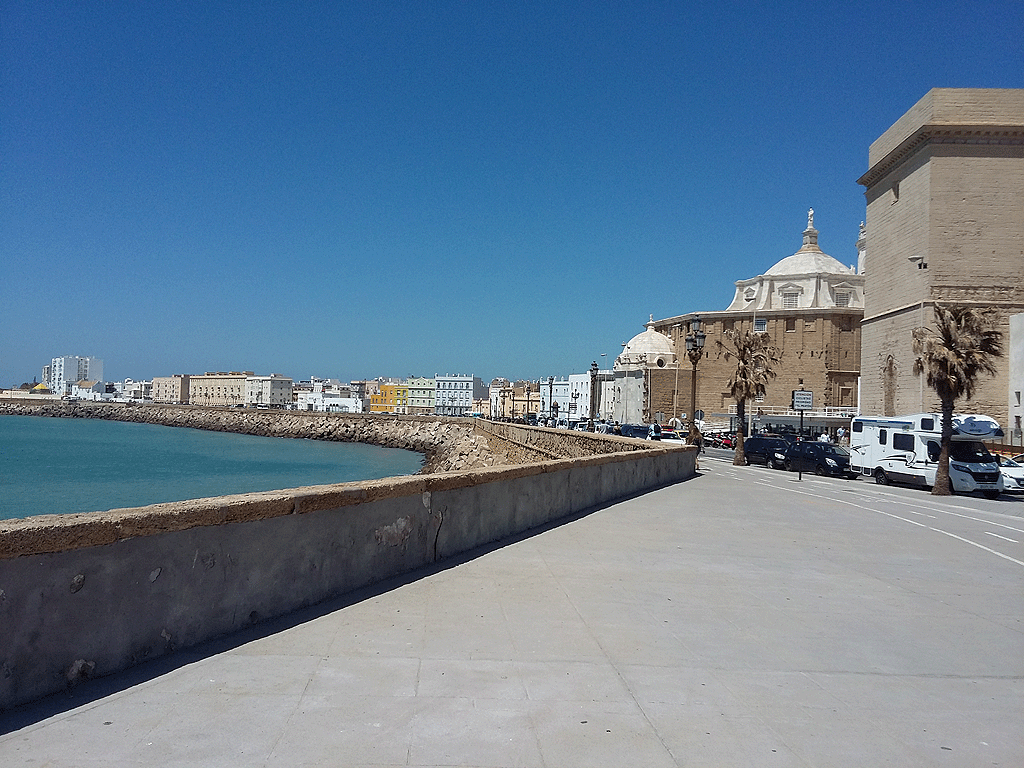
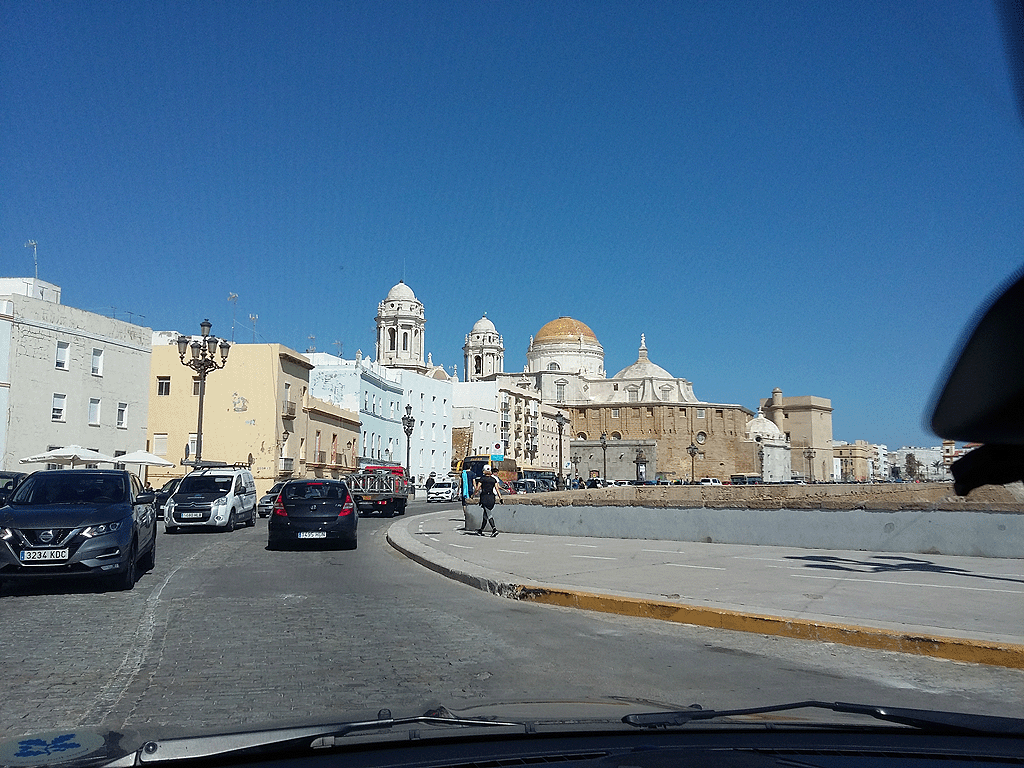
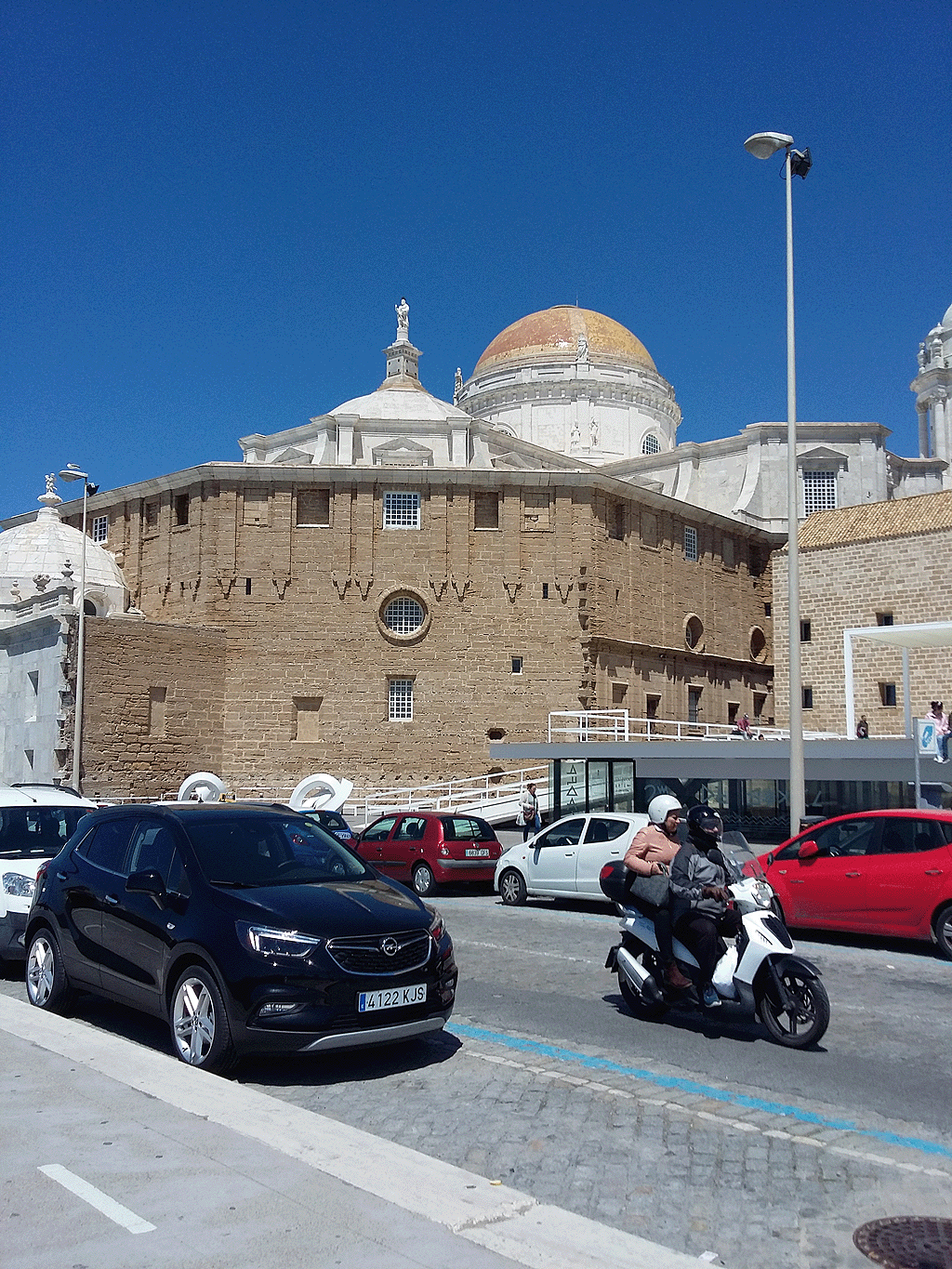
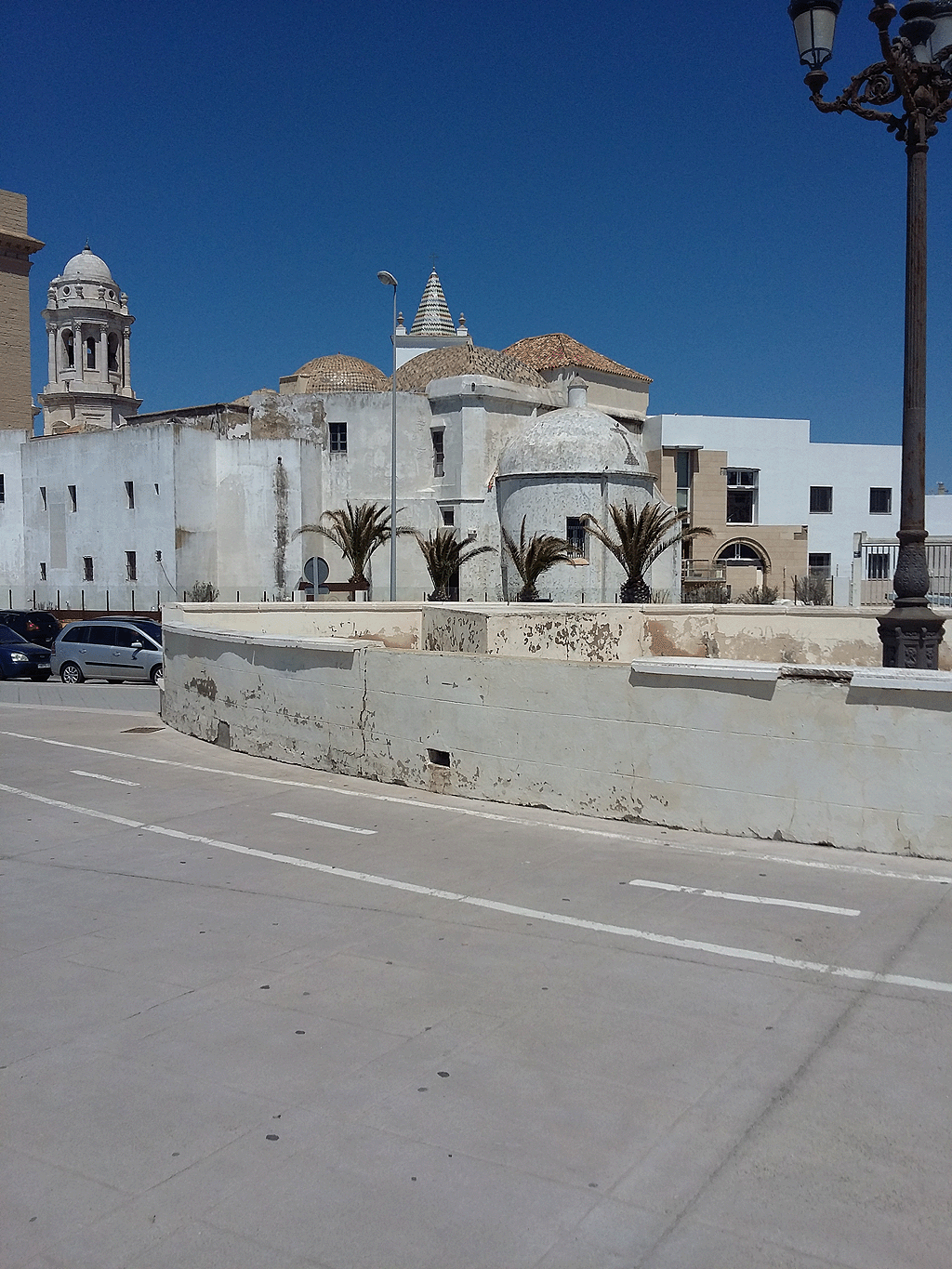
We continued along the road back towards where we entered the old city walls.
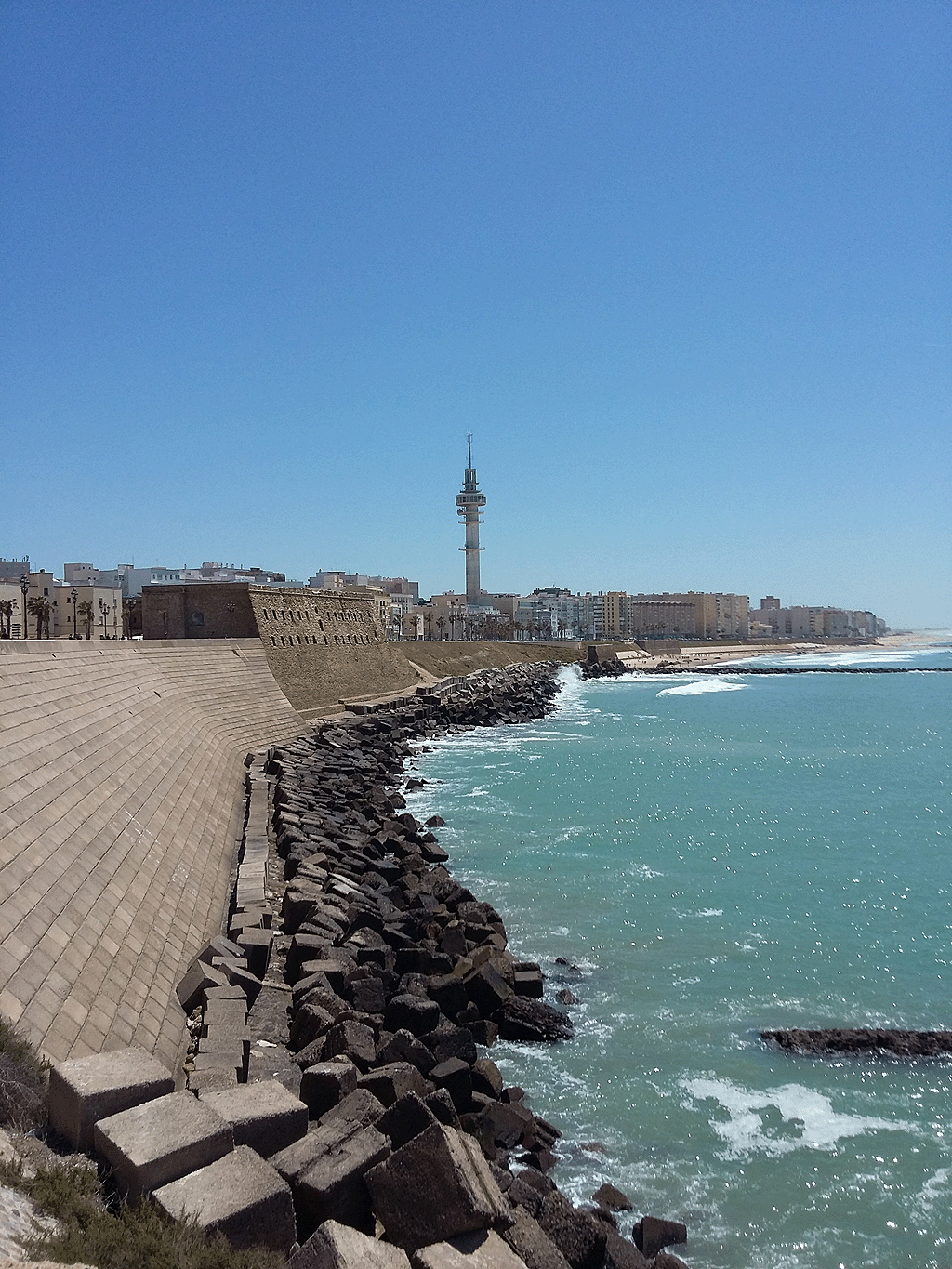
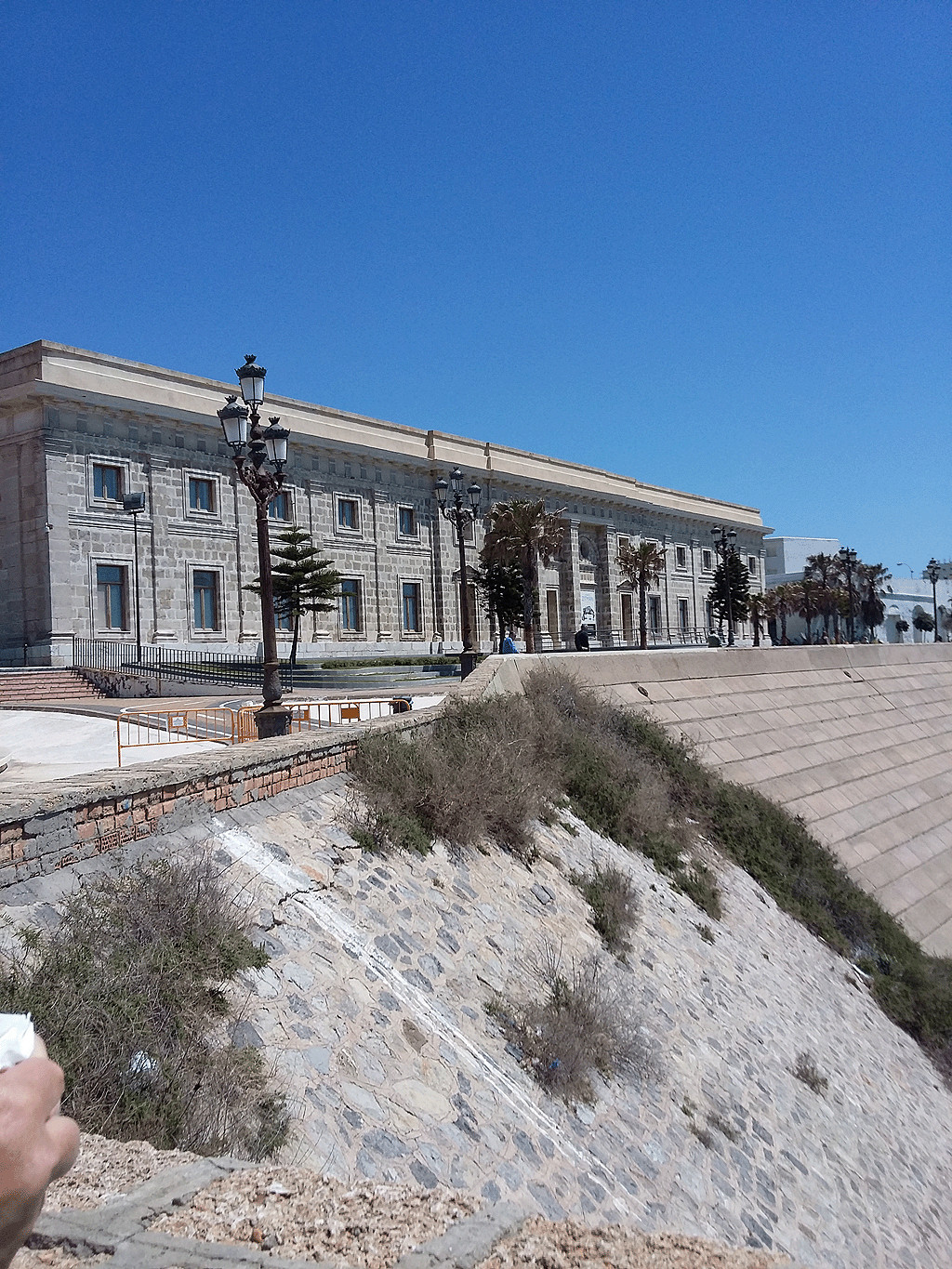
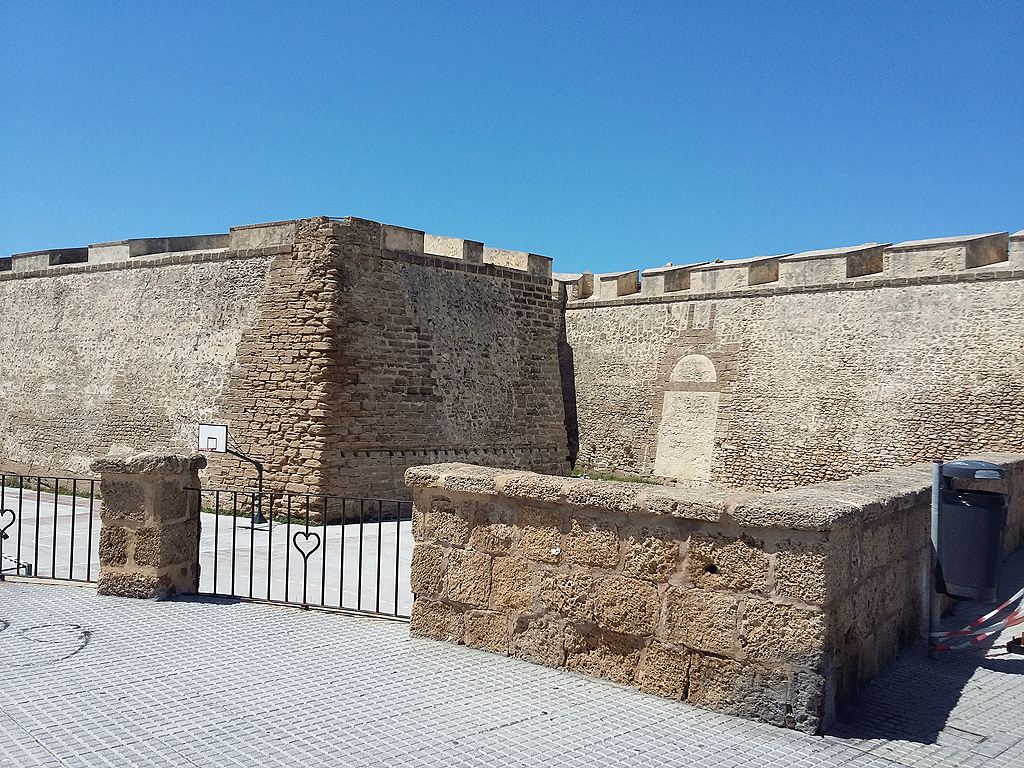
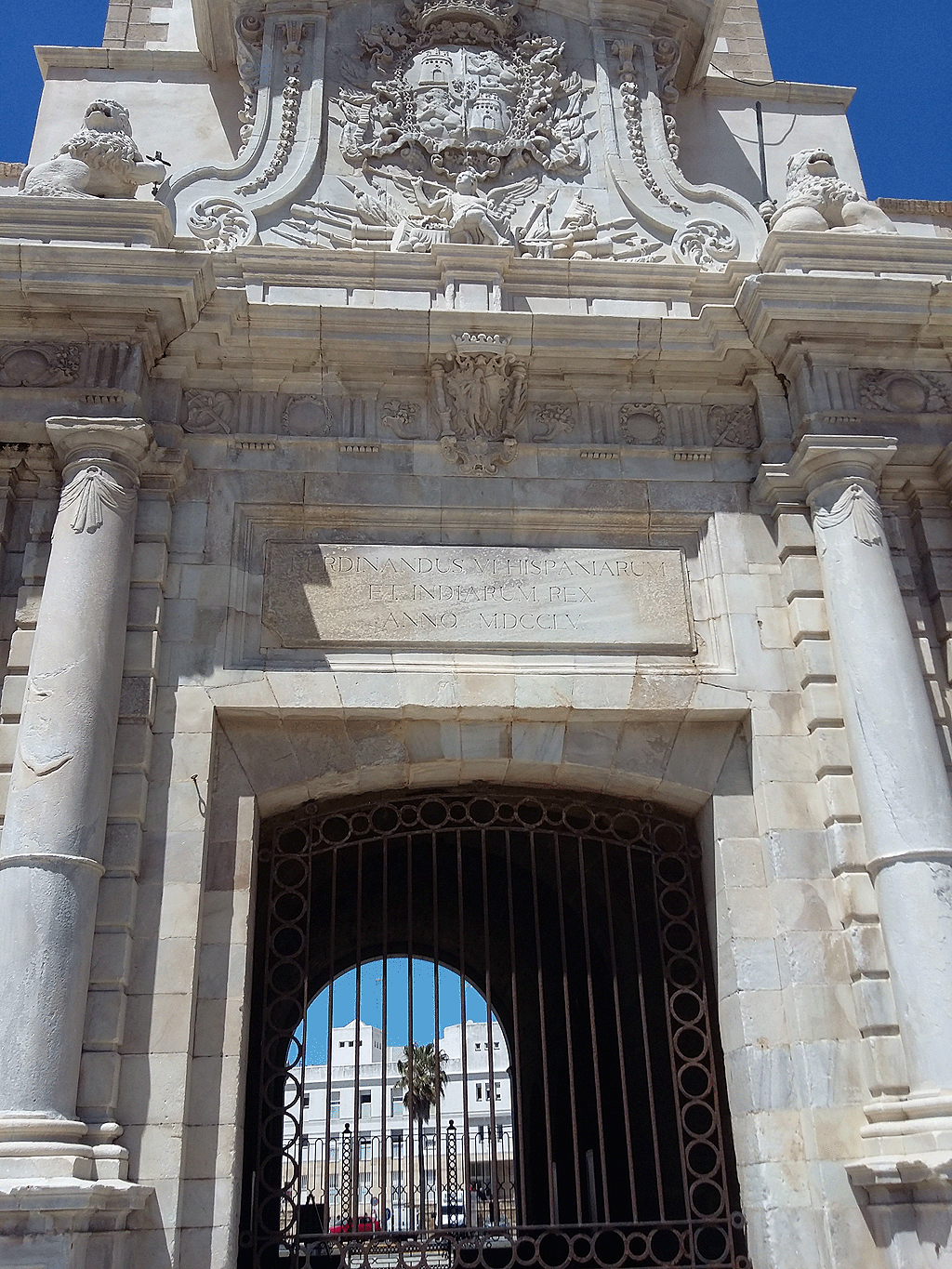
Once again through the walls at the southern part of the city we passed the main modern bus & train station and headed back towards the port.
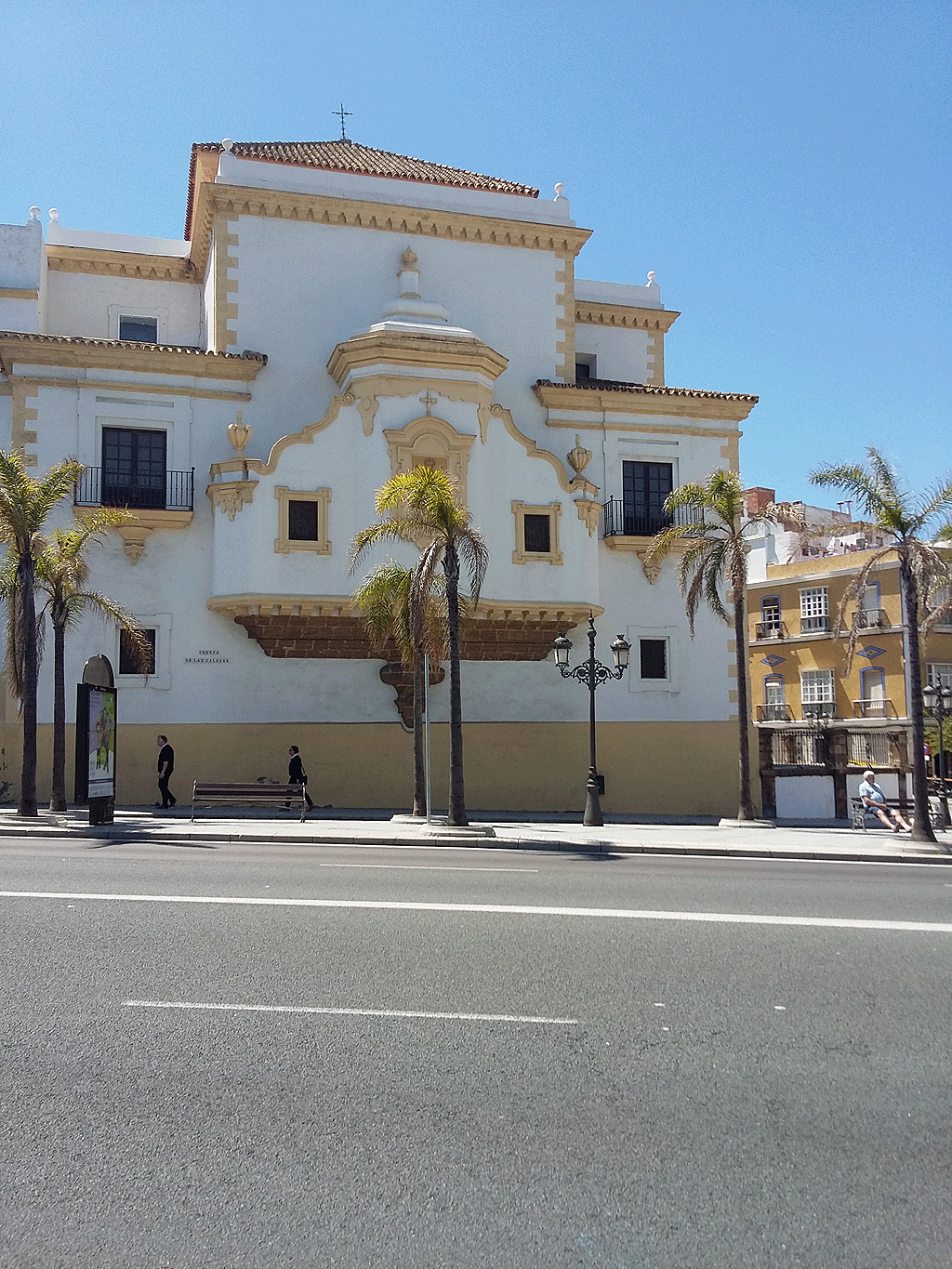
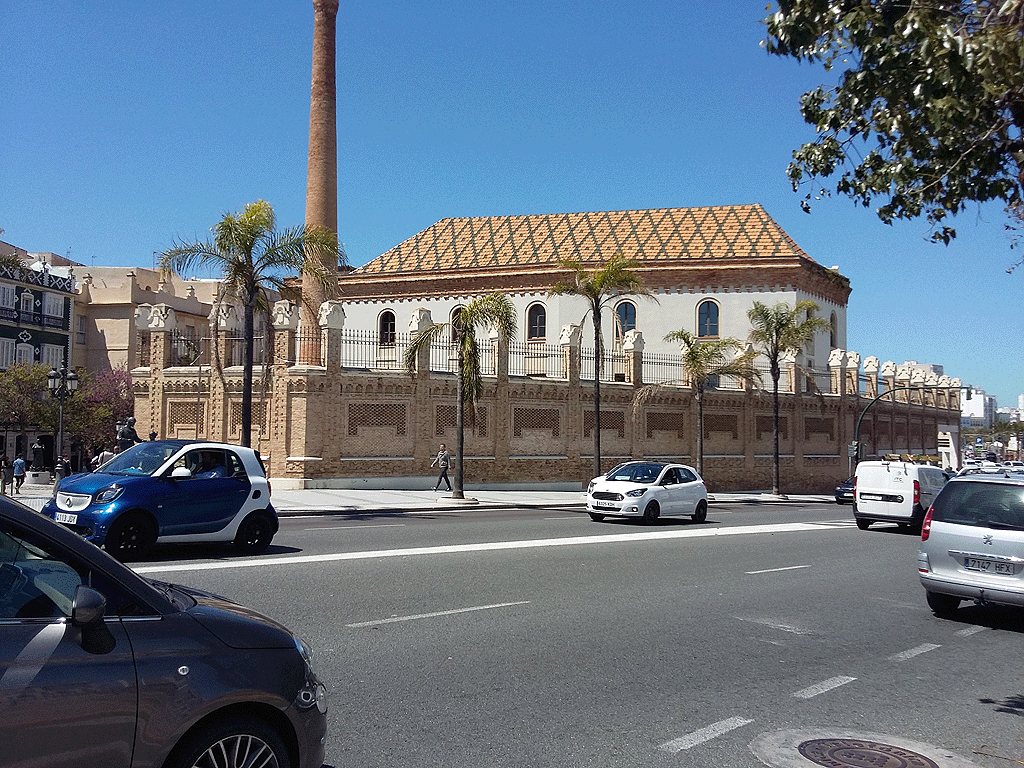
After our 5 hour tour we were beginning to flag and finally had to admit defeat but it’s always exciting to know that there will still be plenty of the city for us to explore in the future.
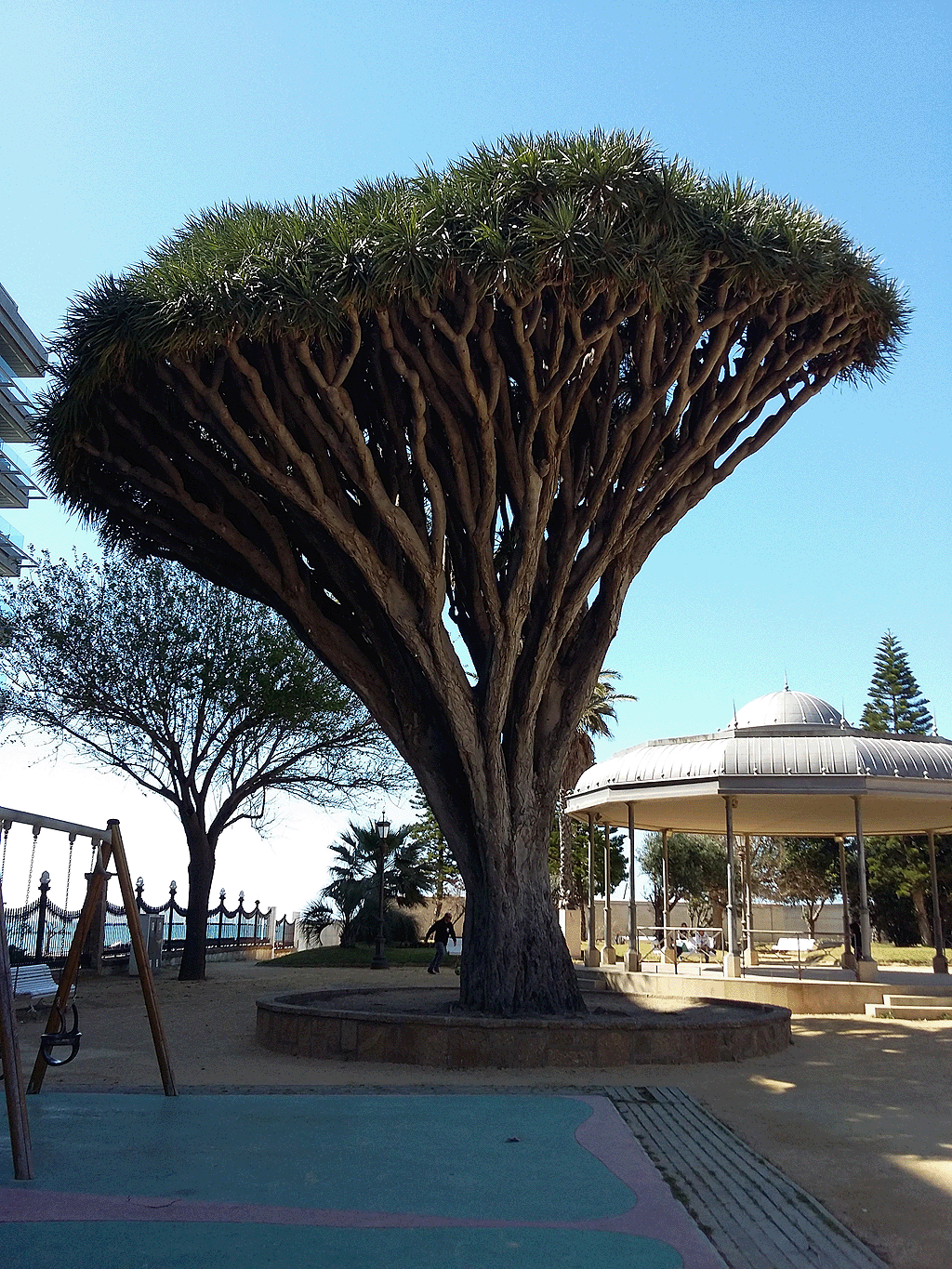
A final stroll through Genovés Park to admire this magnificent specimen on our way back to the car.
